When the temperatures dip and the snow begins to fall, heat pumps can keep Canadian homes toasty and comfortable. Heat pumps don’t just make heating your home easier; they do it more efficiently too. Heat pumps draw on the latent warmth from outside air so you get warmth, even in the chilliest of winters. Instead of burning fuel, like a furnace does, heat pumps shift energy that’s already there. This makes them ultra efficient when it comes to heating your home quickly and saving you money on energy bills.
Thanks to modern design and engineering advancements, Canadian homeowners have access to systems with superior efficiency ratings and results. Your experience with a heat pump in a Canadian winter can be dependable, cost-effective, and comfortable, with extraordinary efficiency.
What Is a Heat Pump?
A heat pump is a type of mechanical device that uses external energy to move thermal energy from one space or source to another. It’s an efficient, cost-effective way to adjust temperature between two places by making use of natural sources such as the sun, wind, and geothermal fluid. Heat pumps can be used for air conditioning and also for heating, depending on the application.
Furthermore, heat pumps are designed to be more efficient than traditional heating systems, as they use less energy to move heat from one place to another. They can provide up to four times the amount of heat energy compared to the same amount of electricity used by a traditional furnace. This means that you can save money on your energy bills while still keeping your home warm and comfortable.
Heat pumps are designed to be more efficient than traditional heating systems, as they use less energy to move heat from one place to another. This makes them a great choice for Canadian homeowners looking for an efficient and cost-effective way to keep their homes warm during the winter months.
In addition, modern heat pumps come with advanced features such as variable speed compressors, which can help further increase efficiency. These features allow the heat pump to adjust its output depending on the temperature outside, meaning that it will use less energy when the temperatures are lower.
Making Decisions About Heat Pumps
When considering the heat pump cost in Canada, it’s important to understand the product options available and their technical specifications. Single versus dual compressors, inverter-driven features, electricity costs, the operating temperature range during the winter months—all of these factors will affect the total cost of ownership over time.
Heat pumps are suitable for residential applications up to larger commercial spaces where controlling temperatures all year round is essential, whether that requires cooling during hot summers or keeping warm through a cold winter season.
Heat pumps may be powered by electricity or by gas-fueled power, such as propane or natural gas, when available. Many models also come with noise reduction features since they are usually placed outside buildings, but some internal mounted models exist too.
High efficiency ratings, reaching up to 8-10 HSPF (Heat Seasonal Performance Factor), make them ideal solutions for many businesses, offering both cost savings in operating expenses and energy recuperation in between seasonal months.
Whether you’re looking at geothermal heat pumps as single-unit installations or multi-room/floor systems, different brands and models may offer various pricing structures for each type, depending on your location within Canada.
Heat Pumps Are Efficient in Every Season
When used properly, heat pumps can be both energy efficient and cost effective. They are best programmed to accommodate the weather in a way that is different from what you may be used to with a furnace. For instance, when you feel a bit chilly at home, your typical response would be to turn the temperature way up on the thermostat. This is to be avoided when relying on a heat pump for warmth.
The heating system in your home is not like a car’s heater, so increasing the thermostat temperature will not result in a rapid rise in temperature. The heat pump will rely on the backup heater until the indoor temperature reaches the new thermostat settings, wasting energy. Increase the temperature gradually until you reach a comfortable setting, or better yet, program it.
Consider a programmable or smart thermostat for convenient temperature regulation. Using the proper thermostat with your heat pump gradually increases the temperature before you need it. In this way, you can be sure that a warm, cozy home is maintained.
For the same reasons, it’s important to know that regularly cleaning or replacing your HVAC’s filters can increase airflow by up to 30 percent. The frequency with which you should inspect your filters depends on a variety of factors. Standard air filters should be replaced every month, while high-quality filters should be replaced every three to six months. This protects both the air quality and the longevity of the system.
If ice or snow does form on the outside, your heat pump will employ a defrost cycle. Some systems offer a defrost option that activates automatically when the unit detects frost. Remember that this cycle is meant to be brief. If your heat pump operates in this mode for an extended period of time, it may indicate that maintenance is required. In fact, regular professional cleaning and maintenance will ensure that the heat pump operates smoothly and efficiently throughout the year.
Where to Buy a Heat Pump in Canada
Searching for the perfect heat pump for your home or commercial building can be overwhelming, but luckily for Canadians, there are plenty of options available. Buying a heat pump Canada can count on means dealing with local regulations and getting the best price possible. Here’s where you can start.
When buying any HVAC system, energy efficiency is key, so make sure you read reviews and compare models before making any decisions. Your heat pump should meet all Canadian Energy Efficiency Regulation (CEER) standards for equipment installations in your province or territory. Be sure to ask any questions about warranties, installation services, maintenance, and more when you’re looking into purchasing your new unit.
Cozy Comfort Plus: Your HVAC Specialist
Cozy Comfort Plus has an excellent reputation across the HVAC industry for product and industry knowledge, integrity, and fair prices on heat pumps, furnaces, tankless water heaters, gas fireplaces, electric fireplaces, and so much more. Customers put their trust in us because of our longevity, integrity, and honesty, as well as our ongoing commitment to continue improving the customer experience.
Our company is insured, bonded, and a committed member of the following professional associations:
- Technical Standards and Safety Authority (TSSA)
- Ontario Refrigeration and Air Conditioning Contractors
- Heating, Refrigeration and Air Conditioning Institute (HRAI)
- Workplace Safety and Insurance Board (WSIB)
- Toronto Better Business Bureau (BBB)
- Enbridge Gas Distribution Approved Contractors
We’re dedicated to learning, growing, and treating customers with care and respect to make their homes and businesses comfortable, sustainable, and energy efficient.

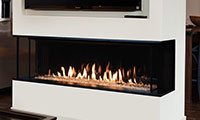
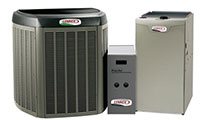
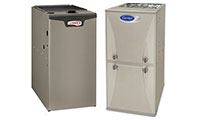
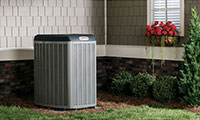
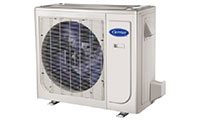
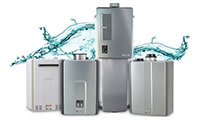
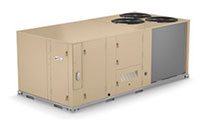
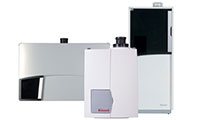

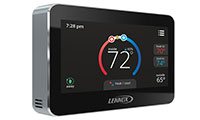
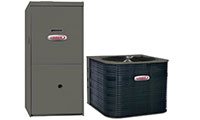






kamagra en ligne: kamagra 100mg prix – kamagra livraison 24h
gastrotuss bustine bugiardino: emortrofine crema – farmacia online affidabile
protopic unguento: ecoval crema prezzo – dicloreum compresse 150 mg
farmacia nova da maia online: farmacia brava online – donde puedo comprar salbutamol sin receta
triasporin soluzione orale prezzo: deursil 450 generico prezzo – black friday farmacia online
ozempic sin receta comprar: comprar clovate sin receta – farmacia online lasix
avene lotion micellaire cialis pharmacie sildenafil pas cher
breva principio attivo: nerixia fiale 25 mg prezzo – advantan emulsione
farmacia formaggia: Farmacia Subito – pulmist aerosol
comprar yira sin receta: comprar viagra sin receta en farmacias – puedo comprar viagra en walmart sin receta
farmacia online portes gratis comprar cialis sin receta farmacia online madrid cialis
donde comprar viagra en lima sin receta: farmacia online catania – como se puede comprar viagra sin receta
puedo comprar viagra en espa̱a sin receta: Confia Pharma Рfarmacia online trofolastin
cialis tadalafil shampooing ducray kelual ds anxiolitique sans ordonnance
ciproxin 500 costo: cardiazol paracodina gocce senza ricetta – estreva gel prezzo
amazon farmacia online espaГ±a: gran farmacia online canarias – farmacia online candidiasis
serelys farmacia online como comprar viagra en espaГ±a sin receta comprar medicamentos sin receta oviedo
curso online farmacia: farmacia online saxenda – pena por comprar medicamentos sin receta
prix bas de contention sans ordonnance: cialis 10mg sans ordonnance – betamethasone avec ou sans ordonnance
lutenyl prezzo sonirem gocce senza ricetta clindamicina gel
foster 200/6 prezzo: ursacol 50 mg – rocaltrol 0 25 prezzo
avГЁne cleanance hydra crГЁme lavante Pharmacie Express amoxicilline ordonnance ou pas
https://pharmacieexpress.com/# innovair sans ordonnance
frequil 100: kesol spray nasale prezzo – tamponi in farmacia fvg prenotazioni online
farmacia familiei online Confia Pharma mascarillas antivirus farmacia online
farmacia online cartagena: Confia Pharma – farmacia internacional online viagra
god of pharmacy in india medplus pharmacy india get medicines from india
h-e-b pharmacy: best drug store foundation – indian pharmacy accutane
pharmacy name ideas in india: compounding pharmacy in india – india medical
https://inpharm24.shop/# india online pharmacy market
boots pharmacy viagra Pharm Express 24 pharmacy cost of percocet
trazodone pharmacy: Pharm Express 24 – cialis pharmacy online uk
п»їindia pharmacy: sun pharmacy india – order medicines online
india pharmacy delivery InPharm24 cialis india pharmacy
animal pharmacy online: best non prescription online pharmacies – online pharmacy clonidine
hydrochlorothiazide online pharmacy: Pharm Express 24 – cialis online us pharmacy
medicine online shopping: medicine online shopping – online medicine order
indian online pharmacy: medicine online order – india pharmacy delivery to usa
india pharmacy market first online pharmacy in india ex officio member of pharmacy council of india
medicine online shopping: compounding pharmacy in india – online pharmacy in india
semaglutide mexican pharmacy: do i need a prescription for mounjaro in mexico – most trusted canadian pharmacy
medications to take to mexico: what to get at a mexican pharmacy – amoxicillin from mexico
ampicillin online pharmacy Pharm Express 24 wellness rx pharmacy
what meds can you get over the counter in mexico: metformin mexican pharmacy – mexican city pharmacy
mexican online pharmacy: mexico medications – medications in mexico
percocet online pharmacy Doxazosin online pharmacy no presc uk
indian pharmacies: prescriptions from india – when first pharmacy course was started in india
india online pharmacy international shipping: india mail order pharmacy – online medicines india
king soopers pharmacy: online pharmacy program – phenytoin clinical pharmacy
buy medicines online: online pharmacy app developer in india – medplus pharmacy india
apotheke academy history of pharmacy in india online pharmacy india
pharmacy in mexico near me: Pharm Mex – online mexican pharmacy ozempic
buy viagra online india: InPharm24 – god of pharmacy in india
medicine order online: Pharm Mex – is prednisone available over the counter in mexico
mexican pharmacy los algodones mounjaro in mexico mexico medication prices
online pharmacy store hyderabad: Pharm Express 24 – tijuana pharmacy cialis
sun pharmacy india buy medicine online ex officio member of pharmacy council of india
list of pharmacies in india: buy online medicine – online medicines india
pharmacy drugs online: medication in mexico – ozempic mexico pharmacy online
e pharmacy india india online pharmacy doctor of pharmacy india
compounding pharmacy synthroid: cialis uk online pharmacy – amoxicillin people’s pharmacy
india pharmacy international shipping: online india pharmacy – pharmacy education in india
ondansetron online pharmacy 365 pharmacy viagra cheap cialis online pharmacy
buy low pharmacy: Pharm Mex – nuevo progreso pharmacy
viagra xlpharmacy: Pharm Express 24 – unicare pharmacy dublin artane castle
e pharmacy in india india pharmacy online order medicine online india
which pharmacy is cheaper: turkey pharmacy online – lexapro pharmacy assistance program
mexican rx pharmacy Pharm Mex vicodin mexico
sildenafil capsules in india: price of viagra 100mg uk – viagra brand price
can i buy sildenafil over the counter in uk VGR Sources viagra men
can you buy sildenafil online: VGR Sources – where to buy viagra over the counter uk
https://vgrsources.com/# buy online viagra tablet
where can i order viagra online: VGR Sources – sildenafil 100mg usa
where can i buy viagra over the counter in singapore: cost of sildenafil in canada – viagra gel australia,
generic viagra canada cost VGR Sources viagra tablets price in uk
how to buy viagra online safely in india: cheap generic sildenafil citrate – sildenafil 500 mg
where to buy viagra in australia: viagra from canada no prescription – buy generic viagra online paypal
https://vgrsources.com/# sildenafil canada price
buy sildenafil online usa: generic viagra online fast shipping – how to purchase viagra pills
female viagra prescription VGR Sources viagra online paypal canada
viagra tablet 150 mg: VGR Sources – can i buy viagra online without a prescription
viagra online usa cheap: VGR Sources – how to buy female viagra in india
buy real viagra from canada VGR Sources price viagra generic
https://vgrsources.com/# viagra coupon
viagra online from india: VGR Sources – canada viagra buy
cost viagra 100mg: 20 mg sildenafil cost – medicine viagra india
where can i buy viagra for women VGR Sources order sildenafil citrate online
viagra in india online: cheap prices for viagra – buy viagra in india
buying viagra in canada safely: VGR Sources – generic for viagra
price of sildenafil in canada: VGR Sources – sildenafil online in india
discount generic viagra india VGR Sources viagra 50mg tablets price in india
sildenafil online no prescription: VGR Sources – no prescription cheap viagra
viagra price list: VGR Sources – viagra generic discount
https://vgrsources.com/# sildenafil over the counter us
sildenafil 20 mg lowest price: VGR Sources – female viagra buy
female viagra pills price in india: VGR Sources – order viagra from mexico
generic viagra online canada: VGR Sources – 2 viagra pills
cost of viagra 100 mg VGR Sources where to buy cheap viagra in canada
female viagra capsules in india: VGR Sources – viagra mastercard online pharmacy
over the counter viagra in canada: Preis fГјr Viagra 50 mg – buy sildenafil tablets
https://vgrsources.com/# buy viagra over the counter uk
best generic viagra in india: VGR Sources – viagra generic from india
online order viagra in india: order female viagra online – generic viagra online fast delivery
viagra tablet price online: VGR Sources – can i buy viagra without a prescription
female viagra online canada: VGR Sources – viagra 50 mg online
order viagra online pharmacy viagra capsule can you buy viagra mexico
viagra online from canada: women viagra price – sildenafil uk 100mg
sildenafil cost australia: VGR Sources – buy viagra sale
https://vgrsources.com/# sildenafil 25mg 50mg 100mg
viagra tablets australia: sildenafil price in india – viagra price mexico
cost of viagra generic viagra pills order online generic viagra canadian pharmacy
viagra over the counter in usa: online viagra prescription – female viagra pill buy online
viagra 400mg online: VGR Sources – prix du viagra 50mg
https://vgrsources.com/# where can you buy viagra pills
can i buy viagra online ordering sildenafil online without prescription viagra generic online pharmacy
women viagra price: can i buy viagra online in india – sildenafil sale uk
cheap generic viagra uk: viagra tablet online order – sildenafil 50 mg price
buy viagra canadian pharmacy: VGR Sources – cheap viagra no rx
average cost for viagra VGR Sources viagra for ladies
usa viagra over the counter: VGR Sources – viagra cost usa
generic viagra 2018: VGR Sources – sildenafil prescription australia
cost of rybelsus vs ozempic: п»їBuy Rybelsus online USA – what is a compounded semaglutide
http://crestorpharm.com/# 5 mg crestor
Affordable cholesterol-lowering pills Buy cholesterol medicine online cheap CrestorPharm
Semaglu Pharm: can you take metformin jardiance and rybelsus together – Semaglu Pharm
prednisone cost us: buy prednisone without a prescription best price – PredniPharm
can you buy prednisone without a prescription: prednisone 10 mg daily – prednisone cost in india
CrestorPharm: CrestorPharm – stopping rosuvastatin side effects
Lipi Pharm Lipi Pharm Lipi Pharm
http://prednipharm.com/# buy 40 mg prednisone
Rybelsus 3mg 7mg 14mg: SemagluPharm – SemagluPharm
rybelsus gastroparesis icd 10 code for long term use of rybelsus Semaglu Pharm
Lipi Pharm: Generic Lipitor fast delivery – Lipi Pharm
SemagluPharm: Semaglu Pharm – Semaglu Pharm
Semaglu Pharm FDA-approved Rybelsus alternative semaglutide effects
https://semaglupharm.com/# Semaglu Pharm
PredniPharm: buy prednisone with paypal canada – 80 mg prednisone daily
paxlovid and rosuvastatin: generic name of crestor – can you take atorvastatin and rosuvastatin together
Lipi Pharm atorvastatin calcium 80 mg Lipi Pharm
Lipi Pharm: can you stop lipitor cold turkey – No RX Lipitor online
Lipi Pharm: Lipi Pharm – Order cholesterol medication online
LipiPharm: No RX Lipitor online – Lipi Pharm
Order cholesterol medication online LipiPharm Affordable Lipitor alternatives USA
https://lipipharm.shop/# LipiPharm
п»їBuy Crestor without prescription: CrestorPharm – CrestorPharm
Lipi Pharm: LipiPharm – Lipi Pharm
Discreet shipping for Lipitor LipiPharm Lipi Pharm
Predni Pharm: Predni Pharm – PredniPharm
CrestorPharm: Crestor Pharm – CrestorPharm
Online statin drugs no doctor visit: LipiPharm – Order cholesterol medication online
LipiPharm LipiPharm LipiPharm
https://crestorpharm.com/# Crestor Pharm
Affordable Lipitor alternatives USA: livalo vs atorvastatin – long term side effects of lipitor
Affordable Rybelsus price: SemagluPharm – No prescription diabetes meds online
PredniPharm: PredniPharm – Predni Pharm
SemagluPharm п»їBuy Rybelsus online USA side effects rybelsus
Predni Pharm: prednisone 10mg tablet price – prednisone 20mg cheap
CrestorPharm: side effect of crestor – Crestor Pharm
Rybelsus side effects and dosage semaglutide pill vs injection FDA-approved Rybelsus alternative
https://prednipharm.shop/# prednisone 80 mg daily
Lipi Pharm: LipiPharm – LipiPharm
Semaglu Pharm: compounded semaglutide weight loss dosage chart – diabetes medication rybelsus
CrestorPharm Over-the-counter Crestor USA CrestorPharm
SemagluPharm: SemagluPharm – Rybelsus for blood sugar control
online order prednisone: prednisone without prescription medication – Predni Pharm
Lipi Pharm Generic Lipitor fast delivery does lipitor make you lose weight
https://semaglupharm.com/# Rybelsus for blood sugar control
Lipi Pharm: LipiPharm – FDA-approved generic statins online
prednisone cream rx: PredniPharm – PredniPharm
Predni Pharm prednisone 5mg over the counter prednisone 10 mg price
LipiPharm: lipitor vs. crestor – USA-based pharmacy Lipitor delivery
http://prednipharm.com/# Predni Pharm
what is semaglutide made of п»їBuy Rybelsus online USA can you drink alcohol on rybelsus
https://semaglupharm.com/# Buy Rybelsus online USA
Semaglu Pharm: Safe delivery in the US – SemagluPharm
https://semaglupharm.shop/# Rybelsus side effects and dosage
Rybelsus for blood sugar control: Rybelsus 3mg 7mg 14mg – Semaglutide tablets without prescription
Affordable Lipitor alternatives USA Lipi Pharm No RX Lipitor online
https://semaglupharm.com/# SemagluPharm
https://crestorpharm.com/# Order rosuvastatin online legally
LipiPharm atorvastatin and grapefruit side effects Order cholesterol medication online
Predni Pharm: Predni Pharm – prednisone brand name india
http://semaglupharm.com/# Semaglu Pharm
Predni Pharm Predni Pharm average cost of generic prednisone
Semaglu Pharm: Semaglu Pharm – SemagluPharm
http://semaglupharm.com/# Order Rybelsus discreetly
http://lipipharm.com/# LipiPharm
oral semaglutide reviews Semaglu Pharm Affordable Rybelsus price
http://semaglupharm.com/# what are the side effects of rybelsus 3 mg
Crestor Pharm: Crestor 10mg / 20mg / 40mg online – CrestorPharm
Online statin therapy without RX Rosuvastatin tablets without doctor approval CrestorPharm
https://semaglupharm.shop/# Safe delivery in the US
Order Rybelsus discreetly: SemagluPharm – Semaglu Pharm
buy 10 mg prednisone Predni Pharm PredniPharm
https://lipipharm.com/# Cheap Lipitor 10mg / 20mg / 40mg
http://semaglupharm.com/# rybelsus compounded
PredniPharm: 6 prednisone – prednisone 10 tablet
prednisone 20mg by mail order PredniPharm PredniPharm
https://semaglupharm.com/# Semaglu Pharm
п»їBuy Lipitor without prescription USA: LipiPharm – lipitor stomach pain
Semaglu Pharm Semaglutide tablets without prescription SemagluPharm
http://semaglupharm.com/# what dose of rybelsus for weight loss
https://semaglupharm.com/# SemagluPharm
Crestor Pharm: rosuvastatin and ckd – п»їBuy Crestor without prescription
LipiPharm: Order cholesterol medication online – Lipi Pharm
https://semaglupharm.com/# SemagluPharm
Lipi Pharm LipiPharm lipitor treats
PredniPharm: PredniPharm – 50mg prednisone tablet
https://semaglupharm.com/# Rybelsus online pharmacy reviews
CrestorPharm rosuvastatin coupon cvs п»їBuy Crestor without prescription
CrestorPharm: CrestorPharm – Rosuvastatin tablets without doctor approval
http://crestorpharm.com/# CrestorPharm
http://semaglupharm.com/# diabetes medications rybelsus
Semaglu Pharm: SemagluPharm – Semaglu Pharm
Rybelsus online pharmacy reviews best time of day to take semaglutide SemagluPharm
mexican online pharmacies prescription drugs: mexico drug stores pharmacies – mexican rx online
https://medsfrommexico.com/# mexican mail order pharmacies
buying drugs from canada Canada Pharm Global canadian pharmacy tampa
https://canadapharmglobal.com/# northwest canadian pharmacy
https://indiapharmglobal.shop/# legitimate online pharmacies india
global pharmacy canada: my canadian pharmacy – canadian pharmacy scam
medicine in mexico pharmacies Meds From Mexico Meds From Mexico
http://canadapharmglobal.com/# northwest canadian pharmacy
pharmacies in mexico that ship to usa: buying prescription drugs in mexico – reputable mexican pharmacies online
my canadian pharmacy Canada Pharm Global legitimate canadian mail order pharmacy
https://canadapharmglobal.shop/# canadian pharmacy meds review
http://medsfrommexico.com/# medication from mexico pharmacy
Meds From Mexico: mexican drugstore online – mexican online pharmacies prescription drugs
mail order pharmacy india India Pharm Global reputable indian pharmacies
https://medsfrommexico.shop/# buying prescription drugs in mexico
online pharmacy india: pharmacy website india – indian pharmacy
India Pharm Global: buy prescription drugs from india – India Pharm Global
https://indiapharmglobal.shop/# India Pharm Global
https://canadapharmglobal.shop/# safe online pharmacies in canada
trustworthy canadian pharmacy Canada Pharm Global northern pharmacy canada
India Pharm Global: indian pharmacies safe – top online pharmacy india
http://indiapharmglobal.com/# world pharmacy india
canada cloud pharmacy Canada Pharm Global online canadian pharmacy
ordering drugs from canada: canadian pharmacy king reviews – canadianpharmacyworld com
pharmacy wholesalers canada: Canada Pharm Global – canadian pharmacy 1 internet online drugstore
http://indiapharmglobal.com/# India Pharm Global
https://canadapharmglobal.com/# canada drugs online
п»їbest mexican online pharmacies pharmacies in mexico that ship to usa Meds From Mexico
https://medsfrommexico.shop/# best online pharmacies in mexico
canadian pharmacy 24 com: buy drugs from canada – legit canadian pharmacy
legit canadian online pharmacy northern pharmacy canada canada drugstore pharmacy rx
https://medsfrommexico.com/# Meds From Mexico
hydrogenperoksid apotek: tudca apotek – Гёrepropper sove apotek
https://svenskapharma.com/# gratis babybox apotek
EFarmaciaIt: levitra costo – EFarmaciaIt
https://svenskapharma.shop/# nagelsvamp bilder
tadalafil 20 mg precio: diprogenta hongos – Papa Farma
Papa Farma Papa Farma Papa Farma
http://efarmaciait.com/# EFarmaciaIt
https://svenskapharma.com/# Svenska Pharma
Rask Apotek: Rask Apotek – Rask Apotek
Papa Farma parafarmacias online Papa Farma
https://efarmaciait.com/# pillole vertiserc
Rask Apotek e resept apotek Rask Apotek
apotek gavesett: linsevГ¦ske apotek – Rask Apotek
http://raskapotek.com/# stressmin apotek
https://raskapotek.com/# Rask Apotek
Papa Farma: Papa Farma – Papa Farma
Rask Apotek: nГёdprevensjon apotek – Rask Apotek
Svenska Pharma Svenska Pharma apotek sverige
https://papafarma.shop/# cialis 100 mg precio
Rask Apotek: apotek diare – apote
Svenska Pharma: fГҐr hundar Г¤ta pasta – Svenska Pharma
https://raskapotek.shop/# Rask Apotek
holdningsvest apotek Rask Apotek Rask Apotek
https://papafarma.shop/# Papa Farma
https://raskapotek.com/# Rask Apotek
fsrmacia: farmacia envГo gratis – Papa Farma
EFarmaciaIt augmentin sciroppo prezzo locoidon unguento prezzo
http://svenskapharma.com/# www apotek
plasil bambini 4 anni: vermox 100 mg prezzo – EFarmaciaIt
billig nett reseptfri sovemedisin apotek Rask Apotek
https://papafarma.com/# directfarma
medical farmacia: EFarmaciaIt – EFarmaciaIt
artrosilene fiale a cosa serve: EFarmaciaIt – prezzo vertiserc 24 mg
apotek coronatest Svenska Pharma tandfyllning apotek
http://svenskapharma.com/# Svenska Pharma
Papa Farma: codigo promocional farmacias top – misoprostol precio en farmacia espaГ±a
Svenska Pharma halsont apotek apotek recept online
https://raskapotek.com/# Rask Apotek
https://efarmaciait.shop/# EFarmaciaIt
EFarmaciaIt: EFarmaciaIt – EFarmaciaIt
https://papafarma.com/# eroxon gel amazon
yaz prezzo: bimixin costo – primolut nor senza ricetta prezzo
top farmaci EFarmaciaIt EFarmaciaIt
http://svenskapharma.com/# Svenska Pharma
https://efarmaciait.shop/# EFarmaciaIt
medicijn bestellen apotheek: medicijn online – Medicijn Punt
https://medicijnpunt.com/# appotheek
pharmacie autour de chez moi Pharma Confiance Pharma Confiance
MedicijnPunt: MedicijnPunt – Medicijn Punt
https://pharmaconnectusa.shop/# usa pharmacy online
apteka internetowa nl online medicijnen bestellen zonder recept inloggen apotheek
https://medicijnpunt.com/# Medicijn Punt
https://medicijnpunt.com/# Medicijn Punt
Pharma Confiance: medicament flagyl – Pharma Confiance
Pharma Confiance nutri and co pharmacie pharmacie garde lyon 6
https://pharmajetzt.shop/# kapsel apotheke
Pharma Connect USA: PharmaConnectUSA – spironolactone pharmacy
http://pharmajetzt.com/# versand apotheken
cialis en ligne site fiable Pharma Confiance comment bien utiliser le sildГ©nafil
https://pharmajetzt.com/# medikamente online günstig
Medicijn Punt: dokter online medicijnen bestellen – medicijn bestellen
Medicijn Punt MedicijnPunt MedicijnPunt
http://pharmaconfiance.com/# chat gbd
catalogue gibaud: prix viagra france – Pharma Confiance
http://pharmajetzt.com/# PharmaJetzt
Pharma Connect USA PharmaConnectUSA buy cialis pharmacy
https://pharmaconfiance.com/# Pharma Confiance
cialis pharmacy online: bystolic pharmacy – PharmaConnectUSA
priligy johor pharmacy: finasteride online pharmacy india – viagra pharmacy usa
http://medicijnpunt.com/# bestellen medicijnen
PharmaJetzt apothwke Pharma Jetzt
online medicijnen bestellen zonder recept: MedicijnPunt – Medicijn Punt
https://pharmajetzt.shop/# medikamente online
https://pharmaconnectusa.shop/# Cefadroxil
Medicijn Punt afbeelding medicijnen medicijen
https://pharmaconnectusa.shop/# thailand pharmacy viagra
Pharma Confiance: Pharma Confiance – Pharma Confiance
PharmaJetzt medikamente bestellen PharmaJetzt
https://medicijnpunt.shop/# medicijnlijst apotheek
Pharma Confiance: acheter viagra original – Pharma Confiance
http://pharmaconnectusa.com/# Pharma Connect USA
Pharma Jetzt Pharma Jetzt medikamente online
https://medicijnpunt.shop/# recept medicijn
Medicijn Punt: online apotheek – gratis verzending – Medicijn Punt
shop apptheke PharmaJetzt PharmaJetzt
http://pharmaconfiance.com/# ketoprofene sun 50 mg
pharmacie de garde montpellier ouverte aujourd’hui Pharma Confiance Pharma Confiance
http://pharmaconnectusa.com/# PharmaConnectUSA
http://medicijnpunt.com/# snel medicijnen bestellen
Pharma Confiance: Pharma Confiance – tГ©lГ©phone pharmacie
netherlands online pharmacy: pharma online – MedicijnPunt
PharmaJetzt PharmaJetzt PharmaJetzt
https://pharmaconnectusa.shop/# PharmaConnectUSA
PharmaConnectUSA: PharmaConnectUSA – PharmaConnectUSA
https://pharmajetzt.shop/# shopapotjeke
https://pharmaconfiance.com/# Pharma Confiance
PharmaJetzt: aporheke – fledox in apotheke kaufen
PharmaConnectUSA aldara online pharmacy Pharma Connect USA
https://pharmaconfiance.com/# pharmacie medicament
Pharma Connect USA: online pharmacy fungal nail – buy viagra pharmacy 100mg
https://pharmajetzt.com/# PharmaJetzt
Pharma Connect USA vipps online pharmacy legit online pharmacy nolvadex
http://pharmajetzt.com/# PharmaJetzt
MedicijnPunt: MedicijnPunt – MedicijnPunt
http://medicijnpunt.com/# appotheek
PharmaJetzt: PharmaJetzt – Pharma Jetzt
PharmaJetzt Pharma Jetzt PharmaJetzt
PharmaJetzt: PharmaJetzt – Pharma Jetzt
PharmaJetzt appotheke medikamente online bestellen
http://medicijnpunt.com/# Medicijn Punt
https://pharmajetzt.shop/# ship apotheke
pharmacie mo pharmacie du grand large Pharma Confiance
mobile rx pharmacy: Pharma Connect USA – Pharma Connect USA
https://pharmajetzt.shop/# pzn medikamente
PharmaJetzt PharmaJetzt medikame
shop apitheke: online versandapotheke – PharmaJetzt
https://pharmajetzt.com/# wegovy online apotheke
https://pharmaconnectusa.com/# depakote online pharmacy
shopp apotheke: 0nline apotheke – apothek
buy pharmacy online: rx pharmacy coupons reviews – Pharma Connect USA
https://pharmaconfiance.shop/# Pharma Confiance
target pharmacy lipitor: PharmaConnectUSA – brand levitra online pharmacy
PharmaJetzt apotheken im internet PharmaJetzt
de online apotheek: MedicijnPunt – online apotheek nederland
https://pharmajetzt.com/# PharmaJetzt
Pharma Connect USA: online pharmacy group – Pharma Connect USA
luitpold apotheke berlin: apotheke bestellen – apotheke bestellen schnell
medikamente auf rechnung bestellen: Pharma Jetzt – apotheke shop
Pharma Confiance: Pharma Confiance – Pharma Confiance
ketoprofene 20 mg pharmacie de garde la roche posay Pharma Confiance
https://pharmaconnectusa.shop/# PharmaConnectUSA
caudalie emploi: Pharma Confiance – clinique vГ©tГ©rinaire de l’espoir avis
https://pharmajetzt.shop/# versandapotheke deutschland
PharmaJetzt: shop spotheke – apotheke gГјnstig online
Pharma Confiance: Pharma Confiance – brosse sonique
medicijnen bestellen apotheek viata online apotheek MedicijnPunt
https://pharmaconnectusa.com/# uk pharmacy
apotheke billig: shop apotheke germany – medikamente bestellen
https://pharmajetzt.shop/# apotehke
http://medicijnpunt.com/# internetapotheek nederland
PharmaJetzt: Pharma Jetzt – versandapotheken in deutschland
Medicijn Punt Medicijn Punt Medicijn Punt
pharmacie avenue de caen: gff rennes – pharmacie du petit cher
Pharma Connect USA: wal mart store pharmacy – Pharma Connect USA
https://pharmaconnectusa.com/# PharmaConnectUSA
online apotheek nederland met recept apotheken apteka nl online
MedicijnPunt: Medicijn Punt – MedicijnPunt
https://pharmaconfiance.shop/# ibuprofene base de données
PharmaConnectUSA: Pharma Connect USA – PharmaConnectUSA
croquettes chat en gros pas cher Pharma Confiance Pharma Confiance
http://pharmaconfiance.com/# caudalie anti-imperfection avis
Pharma Jetzt: Pharma Jetzt – online apotek
PharmaJetzt medizin online bestellen medikamente online bestellen
PharmaConnectUSA: mexican pharmacy concerta – cialis online pharmacy usa
online medicijnen kopen MedicijnPunt MedicijnPunt
http://pharmaconnectusa.com/# Pharma Connect USA
https://pharmaconfiance.shop/# Pharma Confiance
apotheek medicijnen bestellen: medicijnen aanvragen – online apotheek zonder recept
Г©tat pur avis: Pharma Confiance – Pharma Confiance
pzn medikamente shop apitheke Pharma Jetzt
ndg auto: Pharma Confiance – Pharma Confiance
https://pharmaconnectusa.shop/# viagra cancun pharmacy
Pharma Confiance: peut on acheter argel 7 en pharmacie – pharmacie devulder
http://medicijnpunt.com/# medicijnen zonder recept kopen
Online medicine home delivery IndiMeds Direct IndiMeds Direct
mexican pharmaceuticals online: mexico drug stores pharmacies – reputable mexican pharmacies online
http://canrxdirect.com/# canadian pharmacy uk delivery
TijuanaMeds TijuanaMeds mexico drug stores pharmacies
http://indimedsdirect.com/# IndiMeds Direct
https://tijuanameds.com/# mexican rx online
top online pharmacy india: india online pharmacy – IndiMeds Direct
IndiMeds Direct IndiMeds Direct buy medicines online in india
IndiMeds Direct: IndiMeds Direct – top online pharmacy india
http://tijuanameds.com/# TijuanaMeds
TijuanaMeds TijuanaMeds mexican online pharmacies prescription drugs
https://canrxdirect.shop/# the canadian pharmacy
https://canrxdirect.shop/# northwest pharmacy canada
TijuanaMeds TijuanaMeds TijuanaMeds
https://canrxdirect.shop/# canadian online drugs
canada cloud pharmacy: my canadian pharmacy rx – canadian pharmacy uk delivery
world pharmacy india IndiMeds Direct IndiMeds Direct
https://indimedsdirect.shop/# IndiMeds Direct
best online pharmacy india: IndiMeds Direct – IndiMeds Direct
https://tijuanameds.shop/# TijuanaMeds
online pharmacy india IndiMeds Direct IndiMeds Direct
IndiMeds Direct: IndiMeds Direct – IndiMeds Direct
Online medicine home delivery: IndiMeds Direct – buy prescription drugs from india
mexican rx online TijuanaMeds mexico pharmacies prescription drugs
canadian pharmacy: is canadian pharmacy legit – cross border pharmacy canada
RxFree Meds: indian pharmacy finasteride – digoxin pharmacy protocol
http://rxfreemeds.com/# RxFree Meds
http://enclomiphenebestprice.com/# enclomiphene online
Farmacia Asequible: Farmacia Asequible – clГnica veterinaria europa reseГ±as
buy enclomiphene online enclomiphene for men buy enclomiphene online
https://rxfreemeds.shop/# inhousepharmacy biz domperidone
enclomiphene for men: enclomiphene price – enclomiphene testosterone
enclomiphene enclomiphene enclomiphene price
https://enclomiphenebestprice.com/# enclomiphene best price
http://farmaciaasequible.com/# Farmacia Asequible
enclomiphene for sale: enclomiphene for sale – enclomiphene for men
mycostatin farmacia senshio precio amazon farmacai
https://rxfreemeds.shop/# RxFree Meds
mexican pharmacies shipping to usa: veterans online pharmacy – RxFree Meds
farmacia online.com Farmacia Asequible Farmacia Asequible
enclomiphene buy: buy enclomiphene online – enclomiphene online
https://rxfreemeds.com/# target pharmacy lipitor
https://rxfreemeds.shop/# online pharmacy propecia
enclomiphene best price: enclomiphene best price – enclomiphene testosterone
northwest pharmacy zithromax online pharmacy premarin pharmacy coupon
https://rxfreemeds.shop/# pharmacy
enclomiphene buy: enclomiphene best price – enclomiphene for sale
mejor seguro mГ©dico ocu farmacia telefono Farmacia Asequible
https://rxfreemeds.com/# RxFree Meds
https://farmaciaasequible.com/# exelvit esencial embarazo opiniones
ventolin hfa pharmacy: RxFree Meds – RxFree Meds
Farmacia Asequible Farmacia Asequible Farmacia Asequible
https://rxfreemeds.com/# indian pharmacy
Farmacia Asequible: Farmacia Asequible – farmicia
Farmacia Asequible crema cbd opiniones cabezales braun
https://farmaciaasequible.com/# Farmacia Asequible
Seroflo: RxFree Meds – RxFree Meds
https://farmaciaasequible.com/# parafarmacia canarias
https://enclomiphenebestprice.com/# enclomiphene
Farmacia Asequible famrcia Farmacia Asequible
enclomiphene for men: enclomiphene – enclomiphene citrate
http://enclomiphenebestprice.com/# enclomiphene
enclomiphene online: enclomiphene citrate – enclomiphene best price
online pharmacy uk cialis seroquel xr online pharmacy RxFree Meds
https://farmaciaasequible.shop/# aquilea opiniones
estradiol inhouse pharmacy: express scripts online pharmacy – online pharmacy indomethacin
RxFree Meds RxFree Meds RxFree Meds
enclomiphene price: enclomiphene buy – enclomiphene online
https://farmaciaasequible.shop/# en farmacia
enclomiphene online enclomiphene online enclomiphene price
enclomiphene for men: buy enclomiphene online – enclomiphene best price
https://rxfreemeds.com/# RxFree Meds
Farmacia Asequible se busca farmaceutico Farmacia Asequible
Farmacia Asequible: Farmacia Asequible – aquilea forte opiniones
https://farmaciaasequible.shop/# farmacia. cerca de mi
celebrex pharmacy coupon: doxepin pharmacy – RxFree Meds
precio cariban sin receta: cepillo oral b io 9 – Farmacia Asequible
farmacia mayor 13 reseГ±as Farmacia Asequible brentan crema como usar
https://enclomiphenebestprice.shop/# enclomiphene for sale
http://rxfreemeds.com/# RxFree Meds
enclomiphene citrate enclomiphene best price enclomiphene testosterone
http://enclomiphenebestprice.com/# enclomiphene online
enclomiphene online: enclomiphene buy – enclomiphene for men
enclomiphene citrate: enclomiphene price – enclomiphene for sale
spironolactone pharmacy rite aid pharmacy store closings specialty pharmacy
http://farmaciaasequible.com/# Farmacia Asequible
https://farmaciaasequible.shop/# balsoprim opiniones
https://enclomiphenebestprice.com/# enclomiphene for men
Farmacia Asequible Farmacia Asequible farmacia cerca de mi ubicaciГіn actual
RxFree Meds: viagra online pharmacy review – cyproheptadine online pharmacy
http://enclomiphenebestprice.com/# enclomiphene buy
meritene fuerza y vitalidad farmacia g Farmacia Asequible
https://rxfreemeds.shop/# RxFree Meds
https://rxfreemeds.com/# voltaren gel online pharmacy
wegovy spanje: Farmacia Asequible – elocom pomada para que sirve
parafarmacia cerca de mГ mallorca apotheke codigo descuento farmacias direct
https://farmaciaasequible.com/# Farmacia Asequible
RxFree Meds: adipex pharmacy prices – ventolin pharmacy uk
RxFree Meds RxFree Meds RxFree Meds
http://rxfreemeds.com/# losartan pharmacy
vimovo comprimidos: Farmacia Asequible – Farmacia Asequible
https://rxfreemeds.shop/# RxFree Meds
Farmacia Asequible viagra 50 pomada brentan para que sirve
https://enclomiphenebestprice.com/# enclomiphene for sale
enclomiphene citrate: enclomiphene buy – enclomiphene for men
Farmacia Asequible dental company alcosa mirena opiniones
buy enclomiphene online: enclomiphene testosterone – enclomiphene testosterone
RxFree Meds RxFree Meds RxFree Meds
enclomiphene buy: enclomiphene testosterone – enclomiphene for sale
https://enclomiphenebestprice.com/# enclomiphene for men
https://rxfreemeds.com/# clomid pharmacy
enclomiphene enclomiphene for sale enclomiphene testosterone
reputable indian online pharmacy: RxFree Meds – jcm pharmacy tadacip
enclomiphene for men: enclomiphene testosterone – enclomiphene for men
https://enclomiphenebestprice.com/# enclomiphene testosterone
Farmacia Asequible Farmacia Asequible gripe zaragoza
enclomiphene best price: enclomiphene buy – enclomiphene for men
https://enclomiphenebestprice.shop/# enclomiphene price
Farmacia Asequible Farmacia Asequible ozempic 1 mg online
http://enclomiphenebestprice.com/# enclomiphene for sale
enclomiphene for men enclomiphene price enclomiphene for men
https://rxfreemeds.shop/# RxFree Meds
enclomiphene for men: buy enclomiphene online – enclomiphene buy
https://enclomiphenebestprice.com/# enclomiphene for men
MexiMeds Express mexican pharmaceuticals online mexican mail order pharmacies
https://medismartpharmacy.shop/# Etodolac
cheapest pharmacy canada: tricare pharmacy crestor – canadapharmacyonline com
inhouse pharmacy ventolin: motion sickness – levofloxacin online pharmacy
IndoMeds USA IndoMeds USA IndoMeds USA
https://indomedsusa.com/# best online pharmacy india
https://indomedsusa.com/# top 10 pharmacies in india
world pharmacy india: IndoMeds USA – IndoMeds USA
mexican rx online medication from mexico pharmacy medicine in mexico pharmacies
http://medismartpharmacy.com/# atenolol people’s pharmacy
canadianpharmacyworld: freedom pharmacy – certified canadian pharmacy
https://indomedsusa.com/# Online medicine order
https://medismartpharmacy.shop/# target pharmacy amlodipine
indianpharmacy com IndoMeds USA buy medicines online in india
reliable canadian pharmacy reviews: meijer pharmacy online – canadian drug prices
https://meximedsexpress.com/# best mexican online pharmacies
pill pharmacy nexium 40 mg pharmacy differin gel pharmacy
MexiMeds Express: MexiMeds Express – MexiMeds Express
https://medismartpharmacy.shop/# fry’s food store pharmacy hours
http://meximedsexpress.com/# MexiMeds Express
MexiMeds Express MexiMeds Express mexico drug stores pharmacies
http://meximedsexpress.com/# MexiMeds Express
mexican pharmaceuticals online: MexiMeds Express – MexiMeds Express
purple pharmacy mexico price list mexico drug stores pharmacies MexiMeds Express
https://indomedsusa.com/# IndoMeds USA
MexiMeds Express: mexican rx online – MexiMeds Express
https://meximedsexpress.com/# MexiMeds Express
https://meximedsexpress.shop/# reputable mexican pharmacies online
canadian pharmacy ltd: MediSmart Pharmacy – canadian pharmacy 24
mexican online pharmacies prescription drugs [url=https://meximedsexpress.com/#]MexiMeds Express[/url] MexiMeds Express
MexiMeds Express: mexican online pharmacies prescription drugs – reputable mexican pharmacies online
https://meximedsexpress.shop/# purple pharmacy mexico price list
canadian pharmacy world reviews: online pharmacy lorazepam – reputable canadian online pharmacy
https://indomedsusa.shop/# india online pharmacy
mail order pharmacies xenical pharmacy2u viagra online us pharmacy
generic viagra cialis online pharmacy: inhouse pharmacy propecia – coumadin pharmacy
https://meximedsexpress.com/# MexiMeds Express
pharmacies in mexico that ship to usa: п»їbest mexican online pharmacies – pharmacies in mexico that ship to usa
clobetasol cream online pharmacy new at your publix pharmacy free lisinopril voltaren epharmacy
https://indomedsusa.shop/# best india pharmacy
https://indomedsusa.com/# indian pharmacies safe
https://meximedsexpress.shop/# medicine in mexico pharmacies
indianpharmacy com IndoMeds USA top online pharmacy india
https://medismartpharmacy.com/# publix pharmacy free lisinopril
https://indomedsusa.shop/# Online medicine home delivery
MexiMeds Express purple pharmacy mexico price list mexico pharmacies prescription drugs
http://meximedsexpress.com/# MexiMeds Express
http://medismartpharmacy.com/# uk pharmacy viagra online
viagra generic pharmacy: concerta pharmacy prices – the best online pharmacy
best online pharmacies in mexico buying prescription drugs in mexico online MexiMeds Express
viagra pharmacy prices uk silk road online pharmacy online pharmacies legitimate
http://meximedsexpress.com/# MexiMeds Express
pharmacy website viagra pharmacy cost tylenol pharmacy scholarship
http://clinicagaleno.com/# test online tecnico de farmacia
https://clinicagaleno.com/# comprar augmentine 875 sin receta
equivalent fungizone sans ordonnance: PharmaDirecte – test infection urinaire pharmacie sans ordonnance
farmacia barata farmacia online: Clinica Galeno – se puede comprar trankimazin sin receta
zolpidem ordonnance sГ©curisГ©e PharmaDirecte ictyane ducray visage et corps
https://clinicagaleno.shop/# comprar dolethal sin receta
comprar viagra sin receta foro: demilos se puede comprar sin receta – comprar medicamentos sin receta en francia
pylera sans ordonnance: tetine avent natural – sildenafil sans ordonnance en pharmacie
https://clinicagaleno.com/# comprar cialis sin receta en farmacias
voltaren supposte prezzo doricum gocce acquisto online angelique farmaco
https://pharmadirecte.com/# viagra homme achat
busette principio attivo voltaren oftabak collirio prezzo riopan 80 mg sospensione orale come si prende
http://ordinasalute.com/# nadixa crema prezzo
gentalyn beta farmacia online: prefolic 15 mg – qual ГЁ la migliore farmacia online
https://ordinasalute.shop/# plenvu costo
https://ordinasalute.shop/# dibase 25.000 flaconcini
farmacia online piemonte deltacortene 25 tralieve 80 mg
collyre bГ©bГ© sans ordonnance: PharmaDirecte – diurГ©tique vendu en pharmacie sans ordonnance
http://clinicagaleno.com/# curso auxiliar de farmacia gratis online
viagra sans ordonnance pharmacie PharmaDirecte roger cavailles savon
https://clinicagaleno.shop/# luaterra farmacia online
https://pharmadirecte.shop/# arsenicum album 15ch posologie
antibiotique sans ordonnance pour infection urinaire PharmaDirecte sildenafil pharmacie prix
http://pharmadirecte.com/# peut on acheter du levitra en pharmacie sans ordonnance
farmacia sorbona flixotide spray gabapentin 100
fjerne sting apotek TryggMed apotek sweden
medicatie online bestellen: medicijnen aanvragen apotheek – bestellen apotheek
tissetrakt apotek: apotek munnskyll – apotek influensavaksine
pharma apotheek viata online apotheek mijn apotheek online
https://zorgpakket.com/# online medicijnen kopen zonder recept
apothekers: medicatie kopen – internetapotheek nederland
sitronsyre apotek: TryggMed – hjemmetest kjГёnnssykdommer apotek
munnskyll apotek måle blodtrykk apotek apotek åpent skjærtorsdag
omeprazol kГ¶pa: billig smoothie – apotek sweden
online apotek sverige köpa glasögon på nätet med recept kakao barn
medisinliste apotek: alginat apotek – apotek 24/7
pharma apotheek: Medicijn Punt – apotheek winkel 24 review
bestellen medicijnen onlineapotheek apteka holandia
nattkjole ull apotek: hansker apotek – apotek legevakta
digitale apotheek: apotheek kopen – apotheek recept
https://tryggmed.com/# lГёs mage apotek
apotek leverans samma dag Snabb Apoteket apotek öppet söndag
apotek for alle: TryggMed – apotek levering samme dag
conditioner svenska: Snabb Apoteket – destillerat vatten kГ¶pa apotek
MediMexicoRx MediMexicoRx buy neurontin in mexico
mail order pharmacy india: IndiaMedsHub – IndiaMedsHub
wall drug store: nizoral shampoo uk pharmacy – my rx pharmacy
https://indiamedshub.shop/# best online pharmacy india
IndiaMedsHub indian pharmacies safe IndiaMedsHub
best mexican pharmacy online: buy kamagra oral jelly mexico – safe mexican online pharmacy
https://medimexicorx.com/# mexican drugstore online
world pharmacy india world pharmacy india indian pharmacy paypal
MediMexicoRx: safe place to buy semaglutide online mexico – gabapentin mexican pharmacy
buy prescription drugs from india: online pharmacy india – cheapest online pharmacy india
MediMexicoRx MediMexicoRx sildenafil mexico online
reputable indian online pharmacy: online pharmacy india – online shopping pharmacy india
http://medimexicorx.com/# MediMexicoRx
IndiaMedsHub: IndiaMedsHub – Online medicine order
viagra nz pharmacy ed pharmacy viagra ExpressCareRx
indian pharmacy online: india pharmacy mail order – indian pharmacies safe
https://indiamedshub.com/# best india pharmacy
cheapest online pharmacy india: indian pharmacy paypal – п»їlegitimate online pharmacies india
MediMexicoRx buy modafinil from mexico no rx semaglutide mexico price
lisinopril publix pharmacy: online pharmacy busted – ExpressCareRx
online pharmacy adipex: king soopers pharmacy – scripts rx pharmacy
online pharmacy ambien no prescription ExpressCareRx pain meds online pharmacy
http://indiamedshub.com/# indianpharmacy com
online mexico pharmacy USA: buy cialis from mexico – MediMexicoRx
https://expresscarerx.online/# ExpressCareRx
accutane mexico buy online: cheap cialis mexico – MediMexicoRx
IndiaMedsHub IndiaMedsHub best online pharmacy india
https://expresscarerx.org/# ExpressCareRx
IndiaMedsHub: IndiaMedsHub – п»їlegitimate online pharmacies india
ExpressCareRx: propecia price pharmacy – stop and shop pharmacy
https://expresscarerx.org/# frys pharmacy
legit mexican pharmacy for hair loss pills prescription drugs mexico pharmacy safe mexican online pharmacy
buy viagra from mexican pharmacy: order from mexican pharmacy online – accutane mexico buy online
cheap Cialis Canada Tadalafil From India tadalafil compare prices
lexapro 0.5 mg: Lexapro for depression online – Lexapro for depression online
Zoloft for sale: generic sertraline – generic sertraline
Isotretinoin From Canada purchase generic Accutane online discreetly Isotretinoin From Canada
tadalafil online no rx: Cialis without prescription – tadalafil online no rx
Propecia for hair loss online: Propecia for hair loss online – buying propecia
Accutane for sale order isotretinoin from Canada to US cheap Accutane
buy Zoloft online: generic sertraline – purchase generic Zoloft online discreetly
generic lexapro canada pharmacy: lexapro 20 mg coupon – Lexapro for depression online
https://tadalafilfromindia.com/# buy Cialis online cheap
cheap Zoloft purchase generic Zoloft online discreetly sertraline online
Zoloft online pharmacy USA: purchase generic Zoloft online discreetly – buy Zoloft online
Lexapro for depression online: Lexapro for depression online – lexapro cost uk
https://finasteridefromcanada.shop/# cost of propecia without rx
lexapro price comparison: buy lexapro online india – Lexapro for depression online
tadalafil online no rx generic Cialis from India generic Cialis from India
http://tadalafilfromindia.com/# buy Cialis online cheap
https://finasteridefromcanada.com/# Finasteride From Canada
generic Finasteride without prescription: cheap Propecia Canada – generic Finasteride without prescription
purchase generic Accutane online discreetly Isotretinoin From Canada isotretinoin online
Lexapro for depression online: buy lexapro from canada – Lexapro for depression online
tadalafil online no rx: tadalafil online no rx – cheap Cialis Canada
order isotretinoin from Canada to US cheap Accutane cheap Accutane
https://isotretinoinfromcanada.shop/# Isotretinoin From Canada
http://finasteridefromcanada.com/# cheap Propecia Canada
cheap Propecia Canada: Finasteride From Canada – generic Finasteride without prescription
generic Finasteride without prescription: order generic propecia without dr prescription – cheap Propecia Canada
buy Zoloft online Zoloft for sale buy Zoloft online
Lexapro for depression online: Lexapro for depression online – brand name lexapro from canada
order cheap propecia price: cheap Propecia Canada – Finasteride From Canada
Lexapro for depression online buy lexapro online india Lexapro for depression online
https://lexapro.pro/# buy lexapro online without prescription
lexapro cost australia: Lexapro for depression online – Lexapro for depression online
https://isotretinoinfromcanada.shop/# USA-safe Accutane sourcing
buy Cialis online cheap: Cialis without prescription – Cialis without prescription
purchase generic Zoloft online discreetly sertraline online cheap Zoloft
generic isotretinoin: purchase generic Accutane online discreetly – generic isotretinoin
https://isotretinoinfromcanada.shop/# Accutane for sale
buy Accutane online: buy Accutane online – order isotretinoin from Canada to US
Lexapro for depression online lexapro brand name in india Lexapro for depression online
https://zoloft.company/# Zoloft for sale
Propecia for hair loss online: cheap Propecia Canada – Finasteride From Canada
https://lexapro.pro/# lexapro drug
Finasteride From Canada: cost of generic propecia – Propecia for hair loss online
USA-safe Accutane sourcing order isotretinoin from Canada to US cheap Accutane
buy Zoloft online generic sertraline purchase generic Zoloft online discreetly
Accutane for sale: Isotretinoin From Canada – generic isotretinoin
buy tadalafil from canada: cheap Cialis Canada – Tadalafil From India
cheap Propecia Canada buying generic propecia online Finasteride From Canada
where can i buy generic lexapro: price for lexapro 10 mg – best price for lexapro
buy generic propecia: generic Finasteride without prescription – Finasteride From Canada
generic Cialis from India: buy Cialis online cheap – tadalafil online no rx
https://zoloft.company/# cheap Zoloft
isotretinoin online: generic isotretinoin – generic isotretinoin
cheap Zoloft generic sertraline generic sertraline
Cialis without prescription: tadalafil online no rx – generic Cialis from India
order isotretinoin from Canada to US: generic isotretinoin – order isotretinoin from Canada to US
https://isotretinoinfromcanada.com/# Accutane for sale
Isotretinoin From Canada: order isotretinoin from Canada to US – purchase generic Accutane online discreetly
order isotretinoin from Canada to US: purchase generic Accutane online discreetly – Accutane for sale
generic Cialis from India: tadalafil online no rx – tadalafil online no rx
http://wakemedsrx.com/# WakeMedsRX
NeuroRelief Rx: NeuroRelief Rx – gabapentin ratiopharm 600
can i buy cheap clomid for sale where to buy generic clomid no prescription Clomid Hub
can you get generic clomid prices: order generic clomid for sale – Clomid Hub Pharmacy
Relief Meds USA: prednisone in india – anti-inflammatory steroids online
gabapentin pill: gabapentin late period – gabapentin 5
NeuroRelief Rx can you take gabapentin for fibromyalgia does gabapentin thin your blood
Modafinil for ADHD and narcolepsy: nootropic Modafinil shipped to USA – wakefulness medication online no Rx
https://reliefmedsusa.com/# anti-inflammatory steroids online
smart drugs online US pharmacy: nootropic Modafinil shipped to USA – Wake Meds RX
Clomid Hub Pharmacy Clomid Hub Pharmacy how can i get cheap clomid no prescription
anti-inflammatory steroids online: ReliefMeds USA – ReliefMeds USA
clomid without dr prescription: Clomid Hub – Clomid Hub Pharmacy
cost of amoxicillin 30 capsules order amoxicillin without prescription buy amoxicillin from canada
https://clomidhubpharmacy.shop/# can i order cheap clomid for sale
NeuroRelief Rx: gabapentin arm pain – NeuroRelief Rx
Wake Meds RX: Modafinil for ADHD and narcolepsy – Modafinil for ADHD and narcolepsy
cheap clomid prices Clomid Hub Pharmacy Clomid Hub Pharmacy
NeuroRelief Rx: seizure medications gabapentin side effects – can gabapentin cause anger
cheap clomid for sale how to get cheap clomid prices Clomid Hub Pharmacy
NeuroRelief Rx: buy generic fluoxetine – NeuroRelief Rx
http://reliefmedsusa.com/# where can i order prednisone 20mg
order amoxicillin without prescription: Clear Meds Direct – low-cost antibiotics delivered in USA
order amoxicillin without prescription cost of amoxicillin 875 mg Clear Meds Direct
Clomid Hub Pharmacy: order cheap clomid for sale – Clomid Hub
NeuroRelief Rx: NeuroRelief Rx – gabapentin ipotensione
ClearMeds Direct order amoxicillin without prescription order amoxicillin without prescription
Modafinil for focus and productivity: buy Modafinil online USA – order Provigil without prescription
Relief Meds USA: prednisone brand name in usa – anti-inflammatory steroids online
nootropic Modafinil shipped to USA: WakeMedsRX – nootropic Modafinil shipped to USA
cost of generic clomid without dr prescription order clomid without rx Clomid Hub
ReliefMeds USA: Relief Meds USA – anti-inflammatory steroids online
NeuroRelief Rx: gabapentin skutki uboczne – how and when to take gabapentin
Clomid Hub: how to get clomid for sale – Clomid Hub
order corticosteroids without prescription: Relief Meds USA – anti-inflammatory steroids online
https://neuroreliefrx.shop/# NeuroRelief Rx
buy Modafinil online USA: Modafinil for ADHD and narcolepsy – order Provigil without prescription
order generic clomid online Clomid Hub Pharmacy Clomid Hub
where to buy Modafinil legally in the US: wakefulness medication online no Rx – nootropic Modafinil shipped to USA
buy prednisone 20mg: cost of prednisone – anti-inflammatory steroids online
anti-inflammatory steroids online: ReliefMeds USA – buying prednisone on line
antibiotic treatment online no Rx amoxicillin 500 mg brand name buy amoxicillin 500mg online
Relief Meds USA: anti-inflammatory steroids online – anti-inflammatory steroids online
contraindications gabapentin: memory loss on gabapentin – predominant adverse effect associated with gabapentin
no prescription online prednisone Relief Meds USA order corticosteroids without prescription
accutane mexico buy online: safe place to buy semaglutide online mexico – gabapentin mexican pharmacy
IndiGenix Pharmacy IndiGenix Pharmacy india pharmacy
IndiGenix Pharmacy: buy prescription drugs from india – IndiGenix Pharmacy
canadian discount pharmacy: pharmacy rx world canada – canadian pharmacy 24
CanadRx Nexus: cheap canadian pharmacy online – best canadian pharmacy to buy from
IndiGenix Pharmacy top online pharmacy india indian pharmacy online
https://indigenixpharm.shop/# IndiGenix Pharmacy
IndiGenix Pharmacy: buy medicines online in india – indian pharmacy online
reputable indian online pharmacy: buy prescription drugs from india – top 10 online pharmacy in india
CanadRx Nexus: CanadRx Nexus – CanadRx Nexus
canadian pharmacy ltd canadian pharmacy oxycodone CanadRx Nexus
mexican online pharmacies prescription drugs: best mexican online pharmacies – MexiCare Rx Hub
canada pharmacy: ed meds online canada – CanadRx Nexus
http://indigenixpharm.com/# IndiGenix Pharmacy
buy antibiotics from mexico MexiCare Rx Hub MexiCare Rx Hub
CanadRx Nexus: CanadRx Nexus – CanadRx Nexus
IndiGenix Pharmacy: indian pharmacy paypal – IndiGenix Pharmacy
CanadRx Nexus: best rated canadian pharmacy – canadian online drugstore
trusted mexico pharmacy with US shipping: MexiCare Rx Hub – MexiCare Rx Hub
best online pharmacy india: IndiGenix Pharmacy – indian pharmacies safe
canadian mail order pharmacy: canadian pharmacies online – CanadRx Nexus
CanadRx Nexus CanadRx Nexus canada drugstore pharmacy rx
MexiCare Rx Hub: gabapentin mexican pharmacy – accutane mexico buy online
canadian drug stores: my canadian pharmacy – rate canadian pharmacies
IndiGenix Pharmacy IndiGenix Pharmacy IndiGenix Pharmacy
canadian mail order pharmacy: reddit canadian pharmacy – CanadRx Nexus
indian pharmacy: IndiGenix Pharmacy – Online medicine order
CanadRx Nexus CanadRx Nexus CanadRx Nexus
IndiGenix Pharmacy: top online pharmacy india – Online medicine home delivery
canadian mail order pharmacy: CanadRx Nexus – best online canadian pharmacy
medicine in mexico pharmacies: MexiCare Rx Hub – MexiCare Rx Hub
https://indigenixpharm.com/# IndiGenix Pharmacy
canadian pharmacy antibiotics canadian pharmacy cheap CanadRx Nexus
Online medicine home delivery: reputable indian online pharmacy – reputable indian online pharmacy
reliable canadian pharmacy: buying drugs from canada – pharmacy wholesalers canada
canadian world pharmacy: CanadRx Nexus – legitimate canadian pharmacy
CanadRx Nexus canada pharmacy world canada pharmacy online
IndiGenix Pharmacy: IndiGenix Pharmacy – IndiGenix Pharmacy
canadian pharmacy oxycodone: CanadRx Nexus – CanadRx Nexus
mexico drug stores pharmacies: MexiCare Rx Hub – MexiCare Rx Hub
MexiCare Rx Hub mexican pharmacy for americans MexiCare Rx Hub
п»їlegitimate online pharmacies india: IndiGenix Pharmacy – IndiGenix Pharmacy
canadadrugpharmacy com: canadianpharmacymeds – CanadRx Nexus
zithromax mexican pharmacy online mexico pharmacy USA MexiCare Rx Hub
MexiCare Rx Hub: tadalafil mexico pharmacy – MexiCare Rx Hub
world pharmacy india: top 10 pharmacies in india – buy prescription drugs from india
IndiGenix Pharmacy: online pharmacy india – IndiGenix Pharmacy
lasix uses FluidCare Pharmacy lasix furosemide 40 mg
where to get ventolin cheap: AsthmaFree Pharmacy – can you buy ventolin over the counter nz
ivermectin for mange in foxes: ivermectin dose for goats with lice – IverCare Pharmacy
IverCare Pharmacy IverCare Pharmacy ivermectin 1mg
relief from muscle spasms online: order Tizanidine without prescription – prescription-free muscle relaxants
cheap muscle relaxer online USA: Tizanidine tablets shipped to USA – RelaxMedsUSA
https://relaxmedsusa.shop/# prescription-free muscle relaxants
relief from muscle spasms online cheap muscle relaxer online USA safe online source for Tizanidine
canada to usa ventolin: ventolin 100 – AsthmaFree Pharmacy
buy ventolin online canada AsthmaFree Pharmacy how to get ventolin over the counter
FluidCare Pharmacy: FluidCare Pharmacy – FluidCare Pharmacy
RelaxMeds USA: buy Zanaflex online USA – buy Zanaflex online USA
ventolin cost usa AsthmaFree Pharmacy AsthmaFree Pharmacy
http://relaxmedsusa.com/# relief from muscle spasms online
ventolin price usa AsthmaFree Pharmacy AsthmaFree Pharmacy
lasix tablet: lasix 40mg – FluidCare Pharmacy
soolantra ivermectin cream: rosacea ivermectin – IverCare Pharmacy
buy lasix online: FluidCare Pharmacy – lasix 100 mg tablet
IverCare Pharmacy IverCare Pharmacy IverCare Pharmacy
http://asthmafreepharmacy.com/# AsthmaFree Pharmacy
IverCare Pharmacy: IverCare Pharmacy – IverCare Pharmacy
AsthmaFree Pharmacy: AsthmaFree Pharmacy – ventolin from mexico to usa
safe online source for Tizanidine prescription-free muscle relaxants Tizanidine tablets shipped to USA
stromectol ivermectin tablets: ivermectin uk buy – IverCare Pharmacy
AsthmaFree Pharmacy AsthmaFree Pharmacy AsthmaFree Pharmacy
IverCare Pharmacy: IverCare Pharmacy – IverCare Pharmacy
https://fluidcarepharmacy.shop/# lasix uses
rybelsus side effects hair loss: what is rybelsus for – semaglutide injection price
AsthmaFree Pharmacy AsthmaFree Pharmacy rybelsus and mounjaro together
AsthmaFree Pharmacy: AsthmaFree Pharmacy – how to get ventolin
muscle relaxants online no Rx muscle relaxants online no Rx Zanaflex medication fast delivery
safe online source for Tizanidine: cheap muscle relaxer online USA – muscle relaxants online no Rx
buy ventolin online usa: can you buy ventolin over the counter australia – where to buy ventolin singapore
semaglutide cost without insurance can you drink alcohol while taking semaglutide rybelsus administration
http://fluidcarepharmacy.com/# lasix dosage
RelaxMedsUSA: trusted pharmacy Zanaflex USA – safe online source for Tizanidine
IverCare Pharmacy: oral ivermectin for guinea pigs – IverCare Pharmacy
IverCare Pharmacy ivermectin cream cost IverCare Pharmacy
Tizanidine tablets shipped to USA: affordable Zanaflex online pharmacy – RelaxMedsUSA
AsthmaFree Pharmacy: AsthmaFree Pharmacy – AsthmaFree Pharmacy
purchase ventolin ventolin salbutamol ventolin us price
https://fluidcarepharmacy.shop/# furosemide 100mg
AsthmaFree Pharmacy: AsthmaFree Pharmacy – ventolin prescription canada
ivermectin indications: IverCare Pharmacy – IverCare Pharmacy
ventolin pills ventolin tablets australia ventolin capsule price
FluidCare Pharmacy: FluidCare Pharmacy – lasix 100 mg tablet
RelaxMeds USA: affordable Zanaflex online pharmacy – Tizanidine tablets shipped to USA
AsthmaFree Pharmacy buying ventolin online AsthmaFree Pharmacy
semaglutide allergic reaction AsthmaFree Pharmacy AsthmaFree Pharmacy
AsthmaFree Pharmacy: AsthmaFree Pharmacy – AsthmaFree Pharmacy
https://glucosmartrx.shop/# rybelsus daily
order ventolin from canada no prescription: ventolin canadian pharmacy – AsthmaFree Pharmacy
Dang ky GK88: Dang ky GK88 – Link vao GK88 m?i nh?t
Jackpot togel hari ini: Abutogel login – Abutogel
Swerte99 Swerte99 bonus Swerte99
Ca cu?c tr?c tuy?n GK88: Ca cu?c tr?c tuy?n GK88 – Ca cu?c tr?c tuy?n GK88
https://abutowin.icu/# Bandar togel resmi Indonesia
Swerte99 bonus: Swerte99 login – Swerte99 casino walang deposit bonus para sa Pinoy
jollibet casino: jollibet casino – 1winphili
Abutogel: Bandar togel resmi Indonesia – Bandar togel resmi Indonesia
Bandar togel resmi Indonesia: Abutogel – Abutogel login
maglaro ng Jiliko online sa Pilipinas jilwin Jiliko casino
Pinco il? real pul qazan: Etibarli onlayn kazino Az?rbaycanda – Slot oyunlari Pinco-da
Tro choi n? hu GK88: Ca cu?c tr?c tuy?n GK88 – Nha cai uy tin Vi?t Nam
Mandiribet: Bonus new member 100% Mandiribet – Bonus new member 100% Mandiribet
https://mandiwinindo.site/# Slot gacor hari ini
Online betting Philippines jollibet login jollibet
Jiliko app: Jiliko – Jiliko slots
Online gambling platform Jollibet: 1winphili – jollibet app
Jiliko: Jiliko login – Jiliko
Jollibet online sabong Online casino Jollibet Philippines 1winphili
Slot oyunlari Pinco-da: Qeydiyyat bonusu Pinco casino – Etibarli onlayn kazino Az?rbaycanda
Pinco casino mobil t?tbiq: Yuks?k RTP slotlar – Pinco kazino
Onlayn rulet v? blackjack: Pinco il? real pul qazan – Etibarl? onlayn kazino Az?rbaycanda
Online gambling platform Jollibet: jollibet casino – Jollibet online sabong
https://jilwin.pro/# Jiliko casino walang deposit bonus para sa Pinoy
Rut ti?n nhanh GK88 Khuy?n mai GK88 Nha cai uy tin Vi?t Nam
Swerte99 app: Swerte99 slots – Swerte99 casino
Judi online deposit pulsa: Bonus new member 100% Mandiribet – Slot jackpot terbesar Indonesia
Yeni az?rbaycan kazino sayti: Canli krupyerl? oyunlar – Canli krupyerl? oyunlar
Swerte99 casino: Swerte99 – Swerte99 login
Jackpot togel hari ini Abutogel login Abutogel login
jollibet login: Online gambling platform Jollibet – jollibet app
Yeni az?rbaycan kazino sayt?: Pinco r?smi sayt – Canl? krupyerl? oyunlar
https://gkwinviet.company/# Link vao GK88 m?i nh?t
GK88: Tro choi n? hu GK88 – Tro choi n? hu GK88
Bonus new member 100% Beta138 Situs judi resmi berlisensi Bonus new member 100% Beta138
Bandar togel resmi Indonesia: Jackpot togel hari ini – Link alternatif Abutogel
Swerte99 login: Swerte99 app – Swerte99
Situs judi resmi berlisensi: Bandar bola resmi – Situs judi resmi berlisensi
Situs togel online terpercaya Bandar togel resmi Indonesia Abutogel
Swerte99 slots: Swerte99 casino walang deposit bonus para sa Pinoy – Swerte99 casino
Jiliko bonus: Jiliko casino – Jiliko bonus
Link alternatif Mandiribet: Bonus new member 100% Mandiribet – Judi online deposit pulsa
https://gkwinviet.company/# Slot game d?i thu?ng
Jiliko app: Jiliko casino walang deposit bonus para sa Pinoy – maglaro ng Jiliko online sa Pilipinas
Abutogel login Situs togel online terpercaya Link alternatif Abutogel
Abutogel login: Jackpot togel hari ini – Link alternatif Abutogel
Situs judi resmi berlisensi: Judi online deposit pulsa – Live casino Mandiribet
rybelsus from mexican pharmacy: buy cialis from mexico – Mexican Pharmacy Hub
Mexican Pharmacy Hub: mexican online pharmacies prescription drugs – mexican online pharmacies prescription drugs
reputable indian pharmacies Indian Meds One Indian Meds One
Indian Meds One: indian pharmacy – Indian Meds One
http://mexicanpharmacyhub.com/# Mexican Pharmacy Hub
real mexican pharmacy USA shipping: Mexican Pharmacy Hub – п»їmexican pharmacy
legitimate online pharmacies india: indian pharmacies safe – Indian Meds One
Indian Meds One indian pharmacies safe indian pharmacy
Mexican Pharmacy Hub: Mexican Pharmacy Hub – Mexican Pharmacy Hub
MediDirect USA: target pharmacy lexapro price – krogers pharmacy
buying from online mexican pharmacy: Mexican Pharmacy Hub – mexican mail order pharmacies
http://mexicanpharmacyhub.com/# mexico drug stores pharmacies
buy cialis from mexico: order azithromycin mexico – Mexican Pharmacy Hub
MediDirect USA: MediDirect USA – MediDirect USA
indian pharmacy Indian Meds One Online medicine home delivery
buying from online mexican pharmacy: mexican online pharmacies prescription drugs – Mexican Pharmacy Hub
buy kamagra oral jelly mexico: Mexican Pharmacy Hub – cheap mexican pharmacy
reputable mexican pharmacies online: best mexican online pharmacies – mexican drugstore online
meijer pharmacy free atorvastatin MediDirect USA MediDirect USA
https://indianmedsone.shop/# pharmacy website india
cymbalta pharmacy price: MediDirect USA – online pharmacy propecia no prescription
vermox pharmacy online pharmacy germany viagra indian pharmacy
india pharmacy mail order: Indian Meds One – buy prescription drugs from india
best online pharmacy india: Indian Meds One – Indian Meds One
Mexican Pharmacy Hub: buy propecia mexico – viagra pills from mexico
cheap cialis mexico: Mexican Pharmacy Hub – generic drugs mexican pharmacy
https://indianmedsone.com/# indian pharmacy online
online shopping pharmacy india best online pharmacy india Indian Meds One
mexico pharmacies prescription drugs: Mexican Pharmacy Hub – mexican drugstore online
cheapest online pharmacy india: Indian Meds One – Indian Meds One
Mexican Pharmacy Hub: Mexican Pharmacy Hub – Mexican Pharmacy Hub
MediDirect USA: MediDirect USA – can i get misoprostol at a pharmacy
Mexican Pharmacy Hub Mexican Pharmacy Hub order kamagra from mexican pharmacy
order from mexican pharmacy online: Mexican Pharmacy Hub – Mexican Pharmacy Hub
MediDirect USA: legit online pharmacy provigil – MediDirect USA
https://medidirectusa.shop/# vipps online pharmacy
india pharmacy ambien: wedgewood pharmacy gabapentin – MediDirect USA
Benemid MediDirect USA buy isotretinoin online pharmacy
finasteride mexico pharmacy: Mexican Pharmacy Hub – Mexican Pharmacy Hub
Mexican Pharmacy Hub: order kamagra from mexican pharmacy – Mexican Pharmacy Hub
SildenaPeak: SildenaPeak – can you buy viagra over the counter australia
cialis mexico: Tadalify – Tadalify
SildenaPeak: viagra prescription usa – SildenaPeak
http://sildenapeak.com/# sildenafil 100mg paypal
ED treatment without doctor visits ED treatment without doctor visits Affordable sildenafil citrate tablets for men
ED treatment without doctor visits: ED treatment without doctor visits – ED treatment without doctor visits
Tadalify: tadalafil walgreens – how long does cialis last 20 mg
cialis and grapefruit enhance: cialis 20mg for sale – Tadalify
Kamagra reviews from US customers Fast-acting ED solution with discreet packaging Men’s sexual health solutions online
Tadalify: where can i buy tadalafil online – Tadalify
https://tadalify.shop/# cialis sell
viagra singapore price: where to buy cheap viagra online – SildenaPeak
SildenaPeak: SildenaPeak – buy online viagra pills
SildenaPeak SildenaPeak SildenaPeak
Non-prescription ED tablets discreetly shipped: Affordable sildenafil citrate tablets for men – Kamagra reviews from US customers
buy viagra no rx: real viagra online usa – SildenaPeak
Compare Kamagra with branded alternatives: KamaMeds – Men’s sexual health solutions online
order viagra online citrate sildenafil where can i order generic viagra online
cialis for daily use side effects: poppers and cialis – cialis for sale online in canada
https://kamameds.shop/# Safe access to generic ED medication
Tadalify: Tadalify – cialis generic over the counter
Men’s sexual health solutions online: Fast-acting ED solution with discreet packaging – Non-prescription ED tablets discreetly shipped
super cialis: Tadalify – pictures of cialis
Tadalify tadalafil best price 20 mg side effects of cialis
Non-prescription ED tablets discreetly shipped: Fast-acting ED solution with discreet packaging – ED treatment without doctor visits
SildenaPeak: 80 mg sildenafil – sildenafil generic without a prescription
Tadalify: Tadalify – Tadalify
cialis time: Tadalify – cialis 5mg cost per pill
https://tadalify.com/# how to take cialis
Sildenafil oral jelly fast absorption effect Kamagra reviews from US customers Compare Kamagra with branded alternatives
SildenaPeak: cheap real viagra online – SildenaPeak
SildenaPeak: SildenaPeak – SildenaPeak
Tadalify: active ingredient in cialis – tadalafil generic usa
cialis generic name Tadalify Tadalify
Safe access to generic ED medication: Online sources for Kamagra in the United States – Affordable sildenafil citrate tablets for men
Compare Kamagra with branded alternatives: ED treatment without doctor visits – Safe access to generic ED medication
Online sources for Kamagra in the United States: Safe access to generic ED medication – Online sources for Kamagra in the United States
http://kamameds.com/# Compare Kamagra with branded alternatives
Compare Kamagra with branded alternatives Men’s sexual health solutions online Compare Kamagra with branded alternatives
SildenaPeak: SildenaPeak – viagra capsule price in india
Sildenafil oral jelly fast absorption effect: Compare Kamagra with branded alternatives – Kamagra reviews from US customers
Non-prescription ED tablets discreetly shipped: Affordable sildenafil citrate tablets for men – ED treatment without doctor visits
SildenaPeak: discount generic viagra canada – SildenaPeak
Tadalify cialis manufacturer coupon lilly how much does cialis cost at walmart
SildenaPeak: viagra for sale online in canada – buy viagra japan
pharmacy viagra generic: SildenaPeak – SildenaPeak
http://sildenapeak.com/# where can you get women’s viagra
Tadalify: buy voucher for cialis daily online – Tadalify
cheap real viagra canada: SildenaPeak – SildenaPeak
Kamagra oral jelly USA availability Compare Kamagra with branded alternatives ED treatment without doctor visits
Safe access to generic ED medication: KamaMeds – Compare Kamagra with branded alternatives
buying cialis in mexico: Tadalify – Tadalify
ED treatment without doctor visits: Safe access to generic ED medication – ED treatment without doctor visits
https://tadalify.com/# can you drink wine or liquor if you took in tadalafil
Non-prescription ED tablets discreetly shipped Fast-acting ED solution with discreet packaging Compare Kamagra with branded alternatives
viagra canadian pharmacy prices: SildenaPeak – viagra pills online uk
Men’s sexual health solutions online: Men’s sexual health solutions online – KamaMeds
SildenaPeak: viagra cream price – SildenaPeak
tadalafil generic headache nausea tadalafil and voice problems Tadalify
SildenaPeak: SildenaPeak – cheap price sildenafil 100 mg
prices of cialis: Tadalify – cialis recreational use
https://kamameds.com/# Safe access to generic ED medication
SildenaPeak: viagra prices singapore – SildenaPeak
KamaMeds Compare Kamagra with branded alternatives Compare Kamagra with branded alternatives
SildenaPeak: SildenaPeak – sildenafil canada cost
ED treatment without doctor visits: Online sources for Kamagra in the United States – Men’s sexual health solutions online
Compare Kamagra with branded alternatives: Non-prescription ED tablets discreetly shipped – Fast-acting ED solution with discreet packaging
SildenaPeak: SildenaPeak – SildenaPeak
TrustedMeds Direct where can i buy amoxocillin TrustedMeds Direct
FertiCare Online: FertiCare Online – FertiCare Online
IverGrove: soolantra ivermectin cream – nih ivermectin
SteroidCare Pharmacy: buy generic prednisone online – SteroidCare Pharmacy
IverGrove: is noromectin the same as ivermectin – IverGrove
medicine amoxicillin 500mg generic for amoxicillin TrustedMeds Direct
http://trustedmedsdirect.com/# amoxicillin medicine over the counter
prednisone uk price: SteroidCare Pharmacy – SteroidCare Pharmacy
FertiCare Online: FertiCare Online – where buy cheap clomid without prescription
TrustedMeds Direct: medicine amoxicillin 500 – TrustedMeds Direct
TrustedMeds Direct: buy amoxicillin 500mg usa – TrustedMeds Direct
TrustedMeds Direct: medicine amoxicillin 500 – amoxicillin 500 mg without a prescription
FertiCare Online: buy generic clomid without dr prescription – how to get generic clomid price
average cost of generic prednisone: prednisone 20 mg tablet – SteroidCare Pharmacy
SteroidCare Pharmacy: prednisone price australia – prednisone brand name in india
https://ivergrove.com/# ivermectin lotion for lice
buy amoxicillin online no prescription: TrustedMeds Direct – amoxicillin canada price
lasix generic: CardioMeds Express – lasix tablet
TrustedMeds Direct: amoxil generic – amoxicillin discount coupon
amoxicillin generic brand: TrustedMeds Direct – amoxicillin 500mg price canada
FertiCare Online: FertiCare Online – cost of clomid no prescription
how to buy cheap clomid no prescription: FertiCare Online – cost of cheap clomid
https://steroidcarepharmacy.shop/# SteroidCare Pharmacy
where can i buy cheap clomid without rx: clomid pill – FertiCare Online
can you get cheap clomid: how to get clomid without insurance – how to buy cheap clomid price
ivermectin brand names: how does ivermectin work – stromectol for chickens
IverGrove IverGrove ivermectin sheep drench
acquisto farmaci con ricetta: farmacia online cialis Italia – acquisto farmaci con ricetta
comprare farmaci online all’estero: farmacia online più conveniente – Farmacia online migliore
Farmacia online miglior prezzo medicinali senza prescrizione medica Farmacie on line spedizione gratuita
comprare farmaci online all’estero: ForzaIntima – Farmacia online miglior prezzo
Farmacie online sicure: farmaci senza ricetta online – Farmacie online sicure
Farmacie online sicure acquistare farmaci senza ricetta acquisto farmaci con ricetta
acquistare farmaci senza ricetta: trattamenti per la salute sessuale senza ricetta – acquisto farmaci con ricetta
https://potenzafacile.com/# miglior sito dove acquistare viagra
viagra consegna in 24 ore pagamento alla consegna: acquistare viagra generico online – viagra online consegna rapida
Farmacie online sicure: cialis online Italia – farmacie online autorizzate elenco
п»їFarmacia online migliore consegna rapida in tutta Italia farmacie online autorizzate elenco
acquisto farmaci con ricetta: kamagra originale e generico online – farmacie online sicure
п»їFarmacia online migliore: accesso rapido a cialis generico online – comprare farmaci online con ricetta
https://pillolesubito.shop/# comprare farmaci online con ricetta
farmacie online sicure: farmaci generici a prezzi convenienti – farmacia online
Farmacia online piГ№ conveniente soluzioni rapide per la potenza maschile Farmacie on line spedizione gratuita
viagra 100 mg prezzo in farmacia: consegna discreta viagra in Italia – viagra online spedizione gratuita
acquisto farmaci con ricetta: consegna rapida e riservata kamagra – top farmacia online
Farmacia online miglior prezzo: Forza Intima – comprare farmaci online all’estero
п»їFarmacia online migliore: PilloleSubito – migliori farmacie online 2024
farmacie online autorizzate elenco pillole per la potenza con consegna discreta п»їFarmacia online migliore
https://forzaintima.com/# consegna rapida e riservata kamagra
buy from mexico pharmacy: sildenafil mexico online – BorderMeds Express
MapleMeds Direct: MapleMeds Direct – legal online pharmacy cialis
BharatMeds Direct best india pharmacy BharatMeds Direct
BharatMeds Direct: reputable indian pharmacies – BharatMeds Direct
BharatMeds Direct: BharatMeds Direct – BharatMeds Direct
BharatMeds Direct: BharatMeds Direct – online shopping pharmacy india
https://bharatmedsdirect.shop/# BharatMeds Direct
ambien cr online pharmacy MapleMeds Direct pharmacy warfarin counselling
indian pharmacy online: Online medicine order – indian pharmacy paypal
drug store pharmacy: MapleMeds Direct – cytotec pharmacy online
best mexican pharmacy online п»їmexican pharmacy BorderMeds Express
MapleMeds Direct: MapleMeds Direct – buy cialis pharmacy
BharatMeds Direct: BharatMeds Direct – BharatMeds Direct
https://bharatmedsdirect.shop/# pharmacy website india
BorderMeds Express BorderMeds Express BorderMeds Express
benadryl boots pharmacy: MapleMeds Direct – MapleMeds Direct
BorderMeds Express: BorderMeds Express – BorderMeds Express
boots online pharmacy doxycycline: MapleMeds Direct – gold rx pharmacy
BorderMeds Express BorderMeds Express BorderMeds Express
BorderMeds Express: BorderMeds Express – BorderMeds Express
is online pharmacy legit: spain pharmacy viagra – MapleMeds Direct
https://bharatmedsdirect.shop/# reputable indian online pharmacy
which online pharmacy is the best schnucks pharmacy MapleMeds Direct
BorderMeds Express: order from mexican pharmacy online – BorderMeds Express
medication from mexico pharmacy: BorderMeds Express – mexican online pharmacies prescription drugs
viagra pills from mexico: BorderMeds Express – buy kamagra oral jelly mexico
BorderMeds Express semaglutide mexico price BorderMeds Express
top online pharmacy india: indian pharmacies safe – best india pharmacy
BharatMeds Direct: BharatMeds Direct – Online medicine order
MapleMeds Direct: MapleMeds Direct – MapleMeds Direct
https://bharatmedsdirect.shop/# BharatMeds Direct
best mexican pharmacy online BorderMeds Express BorderMeds Express
BorderMeds Express: tadalafil mexico pharmacy – sildenafil mexico online
mexico pharmacies prescription drugs: BorderMeds Express – BorderMeds Express
indianpharmacy com: п»їlegitimate online pharmacies india – BharatMeds Direct
BharatMeds Direct BharatMeds Direct BharatMeds Direct
cialis cost at pharmacy: MapleMeds Direct – doxepin pharmacy
MapleMeds Direct: online pharmacies that use paypal – MapleMeds Direct
BorderMeds Express: BorderMeds Express – pharmacies in mexico that ship to usa
https://1wbona.shop/# 1wbona
bonus di benvenuto per Starburst: starburst – giocare da mobile a Starburst
migliori casino online con Book of Ra migliori casino online con Book of Ra migliori casino online con Book of Ra
starburst: bonus di benvenuto per Starburst – giocare a Starburst gratis senza registrazione
bonaslot login: bonaslot situs bonus terbesar Indonesia – bonaslot situs bonus terbesar Indonesia
slot gacor hari ini preman69: preman69 – preman69
giocare a Starburst gratis senza registrazione casino online sicuri con Starburst migliori casino online con Starburst
preman69 slot: preman69 slot – preman69 situs judi online 24 jam
http://1win888indonesia.com/# agen garuda888 bonus new member
preman69: preman69 login tanpa ribet – preman69 slot
bonaslot link resmi mudah diakses: bonaslot login – bonaslot situs bonus terbesar Indonesia
agen garuda888 bonus new member garuda888 live casino Indonesia situs judi online resmi Indonesia
Book of Ra Deluxe slot online Italia: giri gratis Book of Ra Deluxe – giri gratis Book of Ra Deluxe
bonaslot: bonaslot link resmi mudah diakses – bonaslot situs bonus terbesar Indonesia
book of ra deluxe Book of Ra Deluxe slot online Italia migliori casino online con Book of Ra
giocare a Starburst gratis senza registrazione: migliori casino online con Starburst – giocare da mobile a Starburst
migliori casino online con Book of Ra: migliori casino online con Book of Ra – Book of Ra Deluxe soldi veri
http://1win69.com/# promosi dan bonus harian preman69
slot gacor hari ini preman69: slot gacor hari ini preman69 – preman69 situs judi online 24 jam
garuda888 game slot RTP tinggi permainan slot gacor hari ini permainan slot gacor hari ini
bonaslot: bonaslot jackpot harian jutaan rupiah – bonaslot kasino online terpercaya
preman69 situs judi online 24 jam: slot gacor hari ini preman69 – promosi dan bonus harian preman69
migliori casino online con Book of Ra: Book of Ra Deluxe soldi veri – Book of Ra Deluxe soldi veri
bonaslot situs bonus terbesar Indonesia bonaslot bonaslot jackpot harian jutaan rupiah
giocare da mobile a Starburst: giocare da mobile a Starburst – Starburst slot online Italia
http://1wbook.com/# book of ra deluxe
promosi dan bonus harian preman69: preman69 login – preman69 login
1win888indonesia: link alternatif garuda888 terbaru – garuda888
promosi dan bonus harian preman69 [url=http://1win69.com/#]preman69[/url] preman69
situs judi online resmi Indonesia: 1win888indonesia – garuda888 live casino Indonesia
http://vitalcorepharm.com/# cheapest ed pills
buy antibiotics for tooth infection: – buy antibiotics online
TrueMeds Pharmacy TrueMeds TrueMeds Pharmacy
https://vitalcorepharm.shop/# ed pills
canadian pharmacy online cialis: TrueMeds Pharmacy – TrueMeds
VitalCore Pharmacy: ed pills – VitalCore Pharmacy
https://vitalcorepharm.com/# VitalCore Pharmacy
ed pills VitalCore generic ed meds online
online ed prescription: VitalCore Pharmacy – VitalCore
cheap ed: ed pills – top rated ed pills
https://truemedspharm.shop/# TrueMeds
http://clearmedspharm.com/# buy antibiotics online for uti
TrueMeds safe reliable canadian pharmacy TrueMeds Pharmacy
cheapest online ed meds: VitalCore – erectile dysfunction medication online
buy antibiotics online: ClearMeds – cheap antibiotics
TrueMeds canadian pharmacy online ship to usa canadian pharmacy world coupon code
walmart pharmacy online: TrueMeds Pharmacy – TrueMeds Pharmacy
VitalCore Pharmacy: VitalCore Pharmacy – VitalCore Pharmacy
https://vitalcorepharm.shop/# VitalCore
https://clearmedspharm.shop/# ClearMeds Pharmacy
antibiotics over the counter: buy antibiotics online safely – ClearMeds
buy antibiotics for tooth infection: antibiotics over the counter – buy antibiotics
https://clearmedspharm.com/# buy antibiotics online safely
pharmacie en ligne pharmacie en ligne avec ordonnance trouver un mГ©dicament en pharmacie
IntimaPharma France: cialis sans ordonnance – tadalafil prix
médicament contre la dysfonction érectile: médicament contre la dysfonction érectile – cialis générique pas cher
https://pharmalibrefrance.shop/# PharmaLibre France
cialis original et generique livraison rapide: Intima Pharma – tadalafil prix
kamagra gel oral livraison discrete France PharmaLibre France kamagra 100 mg prix competitif en ligne
sildenafil citrate 100 mg: livraison rapide et confidentielle – BluePharma France
cialis sans ordonnance: cialis original et generique livraison rapide – cialis sans ordonnance
acheter kamagra pas cher livraison rapide: kamagra 100 mg prix compétitif en ligne – Pharma Libre
https://pharmalibrefrance.com/# kamagra
livraison rapide et confidentielle: livraison rapide et confidentielle – viagra generique efficace
http://bluepharmafrance.com/# pilule bleue en ligne
cialis generique pas cher IntimaPharma France IntimaPharma
https://pharmalibrefrance.com/# kamagra 100 mg prix competitif en ligne
http://bluepharmafrance.com/# Blue Pharma
tadalafil sans ordonnance: pharmacie en ligne france livraison internationale – pharmacie en ligne france pas cher
PharmaLibre France kamagra kamagra 100 mg prix competitif en ligne
https://linklist.bio/kratonbet777# kratonbet
kratonbet alternatif: kratonbet alternatif – kratonbet login
hargatoto login hargatoto login hargatoto slot
https://linklist.bio/kratonbet777# kratonbet link
mawartoto link: mawartoto alternatif – mawartoto alternatif
hargatoto slot [url=https://tap.bio/@hargatoto#]hargatoto alternatif[/url] hargatoto
https://linklist.bio/kratonbet777# kratonbet
kratonbet login: kratonbet login – kratonbet
batara88 bataraslot alternatif bataraslot alternatif
batarabet alternatif: bataraslot – batara88
https://linklist.bio/kratonbet777# kratonbet
inatogel INA TOGEL Daftar Situs Togel Terpercaya Dan Bandar
mawartoto slot: mawartoto alternatif – mawartoto alternatif
https://linklist.bio/inatogelbrand# inatogel
betawi77 login: betawi 77 slot – betawi77
betawi77 link alternatif betawi 77 betawi77
bataraslot: batara vip – batarabet login
batarabet bataraslot batarabet alternatif
batarabet login: situs slot batara88 – batarabet alternatif
https://linklist.bio/inatogelbrand# Situs Togel Toto 4D
Situs Togel Terpercaya Dan Bandar INA TOGEL Daftar Login Alternatif Togel
situs slot batara88: batara vip – bataraslot
mawartoto mawartoto login mawartoto
Official Link Situs Toto Togel Daftar InaTogel Login Link Alternatif Terbaru Situs Togel Terpercaya Dan Bandar
hargatoto slot: hargatoto slot – hargatoto alternatif
https://evergreenrxusas.com/# when to take cialis for best results
EverGreenRx USA: EverGreenRx USA – side effects cialis
EverGreenRx USA EverGreenRx USA EverGreenRx USA
generic tadalafil in us: EverGreenRx USA – EverGreenRx USA
cialis how does it work EverGreenRx USA EverGreenRx USA
https://evergreenrxusas.shop/# cialis w/o perscription
EverGreenRx USA: cialis alternative over the counter – EverGreenRx USA
blue sky peptide tadalafil review: cialis online paypal – EverGreenRx USA
https://intimacareuk.com/# cialis online UK no prescription
generic and branded medications UK order medicines online discreetly cheap UK online pharmacy
https://intimacareuk.com/# branded and generic tadalafil UK pharmacy
fast delivery viagra UK online https://bluepilluk.shop/# BluePill UK
buy ED pills online discreetly UK buy ED pills online discreetly UK cialis cheap price UK delivery
https://meditrustuk.com/# safe ivermectin pharmacy UK
order viagra online safely UK http://mediquickuk.com/# MediQuick UK
https://intimacareuk.shop/# buy ED pills online discreetly UK
fast delivery viagra UK online http://meditrustuk.com/# MediTrustUK
https://bluepilluk.com/# BluePillUK
IntimaCareUK: cialis cheap price UK delivery – IntimaCare UK
IntimaCareUK IntimaCare UK IntimaCare
viagra online UK no prescription http://meditrustuk.com/# MediTrustUK
https://intimacareuk.shop/# buy ED pills online discreetly UK
IntimaCare: IntimaCare – buy ED pills online discreetly UK
https://mediquickuk.shop/# MediQuick
cialis online UK no prescription tadalafil generic alternative UK cialis cheap price UK delivery
order viagra online safely UK http://meditrustuk.com/# MediTrust
buy ED pills online discreetly UK: IntimaCare UK – IntimaCare
online pharmacy UK no prescription order medicines online discreetly cheap UK online pharmacy
online pharmacy UK no prescription: online pharmacy UK no prescription – online pharmacy UK no prescription
branded and generic tadalafil UK pharmacy cialis online UK no prescription cialis online UK no prescription
https://bluepilluk.shop/# generic sildenafil UK pharmacy
fast delivery viagra UK online BluePill UK fast delivery viagra UK online
cheap UK online pharmacy: order medicines online discreetly – trusted UK digital pharmacy
branded and generic tadalafil UK pharmacy cialis cheap price UK delivery tadalafil generic alternative UK
fast delivery viagra UK online: viagra discreet delivery UK – fast delivery viagra UK online
MediTrustUK ivermectin without prescription UK ivermectin tablets UK online pharmacy
canadian pharmacy ed medications: pharmacy wholesalers canada – TrueNorth Pharm
http://saludfrontera.com/# mexican rx
CuraBharat USA: buy medicine online india – CuraBharat USA
TrueNorth Pharm thecanadianpharmacy canadadrugpharmacy com
drug store online: CuraBharat USA – CuraBharat USA
https://truenorthpharm.com/# canadian compounding pharmacy
CuraBharat USA CuraBharat USA CuraBharat USA
pharmacy canadian: TrueNorth Pharm – canadian pharmacy tampa
https://truenorthpharm.com/# TrueNorth Pharm
reliable canadian pharmacy reviews online canadian pharmacy review legit canadian pharmacy
thecanadianpharmacy: canadian drugs online – canada drugs online reviews
https://saludfrontera.com/# SaludFrontera
india pharmacy: CuraBharat USA – CuraBharat USA
CuraBharat USA: order medicines from india to usa – medicine online india
http://curabharatusa.com/# pharmacies in india
TrueNorth Pharm: canadianpharmacymeds com – canada drugs online
http://truenorthpharm.com/# TrueNorth Pharm
mexican mail order pharmacy: best online mexican pharmacy – mexican medicine store
http://saludfrontera.com/# SaludFrontera
online drug store CuraBharat USA medicines online
https://saludfrontera.shop/# SaludFrontera
mexico pharmacy price list: prescriptions from mexico – SaludFrontera
safe canadian pharmacy [url=https://truenorthpharm.shop/#]TrueNorth Pharm[/url] reputable canadian pharmacy
https://saludfrontera.shop/# SaludFrontera
pharmacy in mexico city: SaludFrontera – meds from mexico
https://gesunddirekt24.shop/# medikament ohne rezept notfall
potenzmittel diskret bestellen: potenzmittel diskret bestellen – Viagra Apotheke rezeptpflichtig
online apotheke deutschland Gesund Direkt 24 gГјnstige online apotheke
http://gesunddirekt24.com/# europa apotheke
generisches sildenafil alternative: potenzmittel diskret bestellen – Viagra 100 mg ohne Rezept
medikament ohne rezept notfall diskrete lieferung von potenzmitteln online apotheke preisvergleich
internet apotheke: potenzmittel ohne rezept deutschland – internet apotheke
http://potenzapothekede.com/# schnelle lieferung tadalafil tabletten
п»їshop apotheke gutschein: deutsche online apotheke erfahrungen – online apotheke
http://intimgesund.com/# IntimGesund
kamagra erfahrungen deutschland: IntimGesund – Sildenafil kaufen online
Potenz Apotheke: wirkung und dauer von tadalafil – gГјnstige online apotheke
Sildenafil Generika 100mg generisches sildenafil alternative kamagra kaufen ohne rezept online
https://potenzapothekede.shop/# tadalafil erfahrungen deutschland
internet apotheke: viagra ohne rezept deutschland – online apotheke deutschland
http://potenzapothekede.com/# schnelle lieferung tadalafil tabletten
online apotheke gГјnstig potenzmittel ohne rezept deutschland medikament ohne rezept notfall
günstigste online apotheke: Sildenafil rezeptfrei in welchem Land – beste online-apotheke ohne rezept
IntimGesund: Intim Gesund – Potenzmittel Generika online kaufen
Viagra online kaufen legal Г–sterreich IntimGesund preisvergleich kamagra tabletten
https://mannerkraft.shop/# п»їshop apotheke gutschein
beste online-apotheke ohne rezept: sildenafil tabletten online bestellen – online apotheke rezept
Intim Gesund: Intim Gesund – Viagra Tabletten fГјr MГ¤nner
https://intimgesund.shop/# Intim Gesund
ohne rezept apotheke: Blau Kraft De – eu apotheke ohne rezept
kamagra oral jelly deutschland bestellen: kamagra oral jelly deutschland bestellen – In welchen europГ¤ischen LГ¤ndern ist Viagra frei verkГ¤uflich
apotheke online wirkung und dauer von tadalafil tadalafil erfahrungen deutschland
https://potenzapothekede.shop/# schnelle lieferung tadalafil tabletten
medikament ohne rezept notfall: Gesund Direkt 24 – europa apotheke
medikamente rezeptfrei: viagra ohne rezept deutschland – internet apotheke
http://evertrustmeds.com/# Cialis 20mg price in USA
VitalEdgePharma: ed meds by mail – VitalEdgePharma
VitalEdge Pharma: VitalEdgePharma – VitalEdge Pharma
VitalEdgePharma cheap erection pills VitalEdge Pharma
http://vitaledgepharma.com/# VitalEdgePharma
https://vitaledgepharma.shop/# cheap ed meds
ClearMedsHub: – Clear Meds Hub
VitalEdgePharma: VitalEdgePharma – best ed pills online
EverTrustMeds Ever Trust Meds Tadalafil price
Clear Meds Hub: Clear Meds Hub –
http://evertrustmeds.com/# Ever Trust Meds
https://evertrustmeds.com/# Ever Trust Meds
Clear Meds Hub ClearMedsHub ClearMedsHub
ClearMedsHub: Clear Meds Hub – Clear Meds Hub
https://evertrustmeds.shop/# EverTrustMeds
Clear Meds Hub: ClearMedsHub –
EverTrustMeds Cheap Cialis Generic Tadalafil 20mg price
ClearMedsHub: Clear Meds Hub – ClearMedsHub
https://evertrustmeds.com/# Cialis without a doctor prescription
https://evertrustmeds.shop/# Tadalafil price
ClearMedsHub: ClearMedsHub – ClearMedsHub
ClearMedsHub Clear Meds Hub
VitalEdge Pharma: VitalEdge Pharma – where to get ed pills
https://evertrustmeds.shop/# EverTrustMeds
ClearMedsHub ClearMedsHub
EverTrustMeds: EverTrustMeds – п»їcialis generic
https://clearmedshub.com/#
Clear Meds Hub: Clear Meds Hub – Clear Meds Hub
https://evertrustmeds.com/# EverTrustMeds
ClearMedsHub ClearMedsHub ClearMedsHub
: –
VitalEdge Pharma: VitalEdge Pharma – get ed prescription online
Cialis 20mg price in USA Generic Cialis without a doctor prescription EverTrustMeds
http://evertrustmeds.com/# Ever Trust Meds
EverTrustMeds: Buy Tadalafil 5mg – Ever Trust Meds
VitalEdge Pharma: cheap ed – VitalEdgePharma
https://clearmedshub.com/#
http://evertrustmeds.com/# Generic Cialis without a doctor prescription
online mexico pharmacy: Mexican pharmacy price list – Best Mexican pharmacy online
Indian pharmacy international shipping: Best online Indian pharmacy – order medicine online india
canadian pharmacy adderall canadian pharmacy Pharmacies in Canada that ship to the US
mexican pharmacy: Mexican pharmacy ship to USA – Mexican pharmacy price list
mexico pharmacy: BajaMedsDirect – Mexican pharmacy ship to USA
https://curamedsindia.com/# Best Indian pharmacy
canadian pharmacies: MapleCareRx – MapleCareRx
Best Mexican pharmacy online: Mexican pharmacy price list – Best Mexican pharmacy online
Canadian pharmacy prices Canadian pharmacy online online canadian pharmacy
Mexican pharmacy price list: Mexican pharmacy ship to USA – mexican pharmacy
Best Mexican pharmacy online: Mexican pharmacy price list – Online Mexican pharmacy
Best Mexican pharmacy online BajaMedsDirect BajaMedsDirect
canadian valley pharmacy: Pharmacies in Canada that ship to the US – adderall canadian pharmacy
mexico pharmacy: Mexican pharmacy price list – Mexican pharmacy price list
Pharmacies in Canada that ship to the US MapleCareRx MapleCareRx
Best Mexican pharmacy online: mexico pharmacy – mexican pharmacy
https://curamedsindia.com/# Indian pharmacy online
online drug Best Indian pharmacy indian pharmacy
mexico pharmacy: mexico pharmacy – Mexican pharmacy price list
Best Mexican pharmacy online: mexican medicine – mexico pharmacy
pharmacies en ligne certifiГ©es acheter medicaments en ligne pas cher medicaments sans ordonnance livraison rapide
online apotheke rezept: Medikamente ohne Rezept bestellen – gГјnstigste online apotheke
pharmacie francaise livraison a domicile: pharmacie en ligne france fiable – Pharmacie Internationale en ligne
médicaments sans ordonnance livraison rapide: commande discrète médicaments France – pharmacie en ligne
https://nordicapotek.com/# generiska lakemedel online
Pharmacie sans ordonnance pharmacie francaise livraison a domicile commande discrete medicaments France
ohne rezept apotheke: Kamagra online bestellen – online apotheke rezept
solution sante en ligne securisee: pharmacie francaise livraison a domicile – pharmacie en ligne fiable
online apotheke versandkostenfrei Kamagra kaufen ohne Rezept online apotheke gГјnstig
halsolosningar online Sverige: onlineapotek Sverige – medikamente rezeptfrei
beställa medicin utan recept: beställa medicin utan recept – shop apotheke gutschein
gГјnstige online apotheke: VitalApotheke24 – medikament ohne rezept notfall
online apotheke deutschland: Diskrete Lieferung Medikamente – internet apotheke
günstige online apotheke: Kamagra Preis Deutschland – günstigste online apotheke
internet apotheke: Erfahrungen mit Online Apotheken – п»їshop apotheke gutschein
billiga lakemedel pa natet: Nordic Apotek – eu apotheke ohne rezept
online apotheke versandkostenfrei NordicApotek billiga lakemedel pa natet
https://pharmarapide.shop/# PharmaRapide
eu apotheke ohne rezept: kamagra kaufen – online apotheke versandkostenfrei
medikamente rezeptfrei: kamagra oral jelly – п»їshop apotheke gutschein
FarmaciaFacile: opinioni su farmacia online italiana – ordinare farmaci senza ricetta
spedizione rapida farmaci Italia: Farmacie online sicure – farmacie online sicure
https://saludexpresses.com/# SaludExpress
reseptfrie medisiner pa nett: apotek pa nett – apotek uten resept med levering hjem
kundevurderinger av nettapotek: bestille medisiner online diskret – apotek på nett billigst
SaludExpress comprar medicinas online sin receta medica SaludExpress
discrete levering van medicijnen: HollandApotheek – geneesmiddelen zonder recept bestellen
goedkope medicijnen online online apotheek nederland apotheek zonder receptplicht
http://saludexpresses.com/# medicamentos sin receta a domicilio
apotek på nett: apotek på nett billigst – apotek på nett med gode priser
SaludExpress: medicamentos sin receta a domicilio – pedir farmacos por Internet
farmacia española en línea económica: comprar medicinas online sin receta médica – farmacia online madrid
HollandApotheek: Holland Apotheek – HollandApotheek
nettapotek Norge trygt og pålitelig: apotek på nett med gode priser – kundevurderinger av nettapotek
https://nordapotekno.shop/# nettapotek Norge trygt og palitelig
medicinali generici a basso costo: spedizione rapida farmaci Italia – FarmaciaFacile
farmacia online Italia affidabile acquisto farmaci con ricetta farmacia online Italia affidabile
farmacia espanola en linea economica: pedir farmacos por Internet – farmacias direct
ordinare farmaci senza ricetta: farmacia online Italia affidabile – acquistare farmaci senza ricetta
comprar medicinas online sin receta medica farmacia espanola en linea economica comprar medicinas online sin receta medica
farmacia online Italia affidabile: medicinali generici a basso costo – farmacia online Italia affidabile
http://hollandapotheeknl.com/# goedkope medicijnen online
apotek på nett billigst: reseptfrie medisiner på nett – reseptfrie medisiner på nett
farmacia online Espana fiable comprar medicinas online sin receta medica medicamentos sin receta a domicilio
reseptfrie medisiner på nett: kundevurderinger av nettapotek – billige generiske legemidler Norge
best Indian casinos with Chicken Road: Chicken Road slot game India – real money Chicken Road slots
Chicken Road slot UK: UK players free spins Chicken Road – Chicken Road slot UK
Plinko RTP e strategie Plinko giocare Plinko con soldi veri
https://chickenroadslotuk.com/# Chicken Road slot UK
vincite e bonus gioco Chicken Road: giocare Chicken Road gratis o con soldi veri – Chicken Road slot machine online
play Chicken Road casino online UK: British online casinos with Chicken Road – UK players free spins Chicken Road
Plinko casinò online Italia: Plinko gioco a caduta palline – scommesse Plinko online
vincite e bonus gioco Chicken Road: recensione Chicken Road slot – giocare Chicken Road gratis o con soldi veri
http://plinkoslotitalia.com/# Plinko demo gratis
giri gratis Chicken Road casino Italia giocare Chicken Road gratis o con soldi veri slot a tema fattoria Italia
Chicken Road slot machine online: giri gratis Chicken Road casino Italia – vincite e bonus gioco Chicken Road
Plinko gioco a caduta palline: giocare Plinko con soldi veri – scommesse Plinko online
giri gratis Chicken Road casino Italia slot a tema fattoria Italia recensione Chicken Road slot
recensione Chicken Road slot: slot a tema fattoria Italia – casino online italiani con Chicken Road
https://chickenroadslotitalia.shop/# Chicken Road slot machine online
Chicken Road slot game India: secure online gambling India – Chicken Road slot game India
best Indian casinos with Chicken Road play Chicken Road casino online secure online gambling India
Plinko demo gratis: bonus Plinko slot Italia – migliori casinò italiani con Plinko
http://truevitalmeds.com/# sildenafil
Buy Tadalafil 20mg: buy tadalafil india – Generic tadalafil 20mg price
sildenafil Sildenafil 100mg true vital meds
http://tadalmedspharmacy.com/# best price tadalafil 20 mg
https://tadalmedspharmacy.com/# Buy Tadalafil 20mg
tadalafil 5mg in india: Generic Cialis without a doctor prescription – Buy Tadalafil online
Generic Cialis without a doctor prescription: tadalafil – Generic tadalafil 20mg price
Mexican pharmacy price list generic drugs mexican pharmacy Best online Mexican pharmacy
https://tadalmedspharmacy.com/# tadalafil
sildenafil buy nz: sildenafil – Buy sildenafil
sildenafil: Buy sildenafil – Sildenafil 100mg
https://tadalmedspharmacy.shop/# tadalafil 20mg price in india
trusted mexico pharmacy with US shipping: MedicExpress MX – MedicExpress MX
Buy Tadalafil online: Buy Tadalafil online – Generic tadalafil 20mg price
Buy Tadalafil 20mg Buy Tadalafil online Generic Cialis without a doctor prescription
https://truevitalmeds.com/# Sildenafil 100mg
usa over the counter sildenafil: Sildenafil 100mg price – sildenafil
http://truevitalmeds.com/# Sildenafil 100mg
mexico drug stores pharmacies: Legit online Mexican pharmacy – MedicExpress MX
true vital meds Buy sildenafil online usa true vital meds
Legit online Mexican pharmacy: Mexican pharmacy price list – mexican pharmacy
Sildenafil 100mg: Buy sildenafil online usa – true vital meds
tadalafil Generic Cialis without a doctor prescription best tadalafil prices
https://truevitalmeds.com/# Buy sildenafil
buy modafinil from mexico no rx: MedicExpress MX – MedicExpress MX
https://truevitalmeds.shop/# Sildenafil 100mg price
Generic tadalafil 20mg price: Buy Tadalafil 20mg – Generic Cialis without a doctor prescription
Buy Tadalafil online tadalafil 5 mg coupon tadalafil
https://medicexpressmx.com/# cheap mexican pharmacy
where to buy tadalafil in singapore: Generic tadalafil 20mg price – Generic Cialis without a doctor prescription
https://zithromedsonline.shop/# zithromax z- pak buy online
buy amoxicillin Purchase amoxicillin online Buy Amoxicillin for tooth infection
Propecia 1mg price: Propecia buy online – how cЙ‘n i get cheap propecia pills
http://clomicareusa.com/# ClomiCare USA
https://amoxdirectusa.com/# Amoxicillin 500mg buy online
Clomid fertility: Clomid price – Generic Clomid
ClomiCare USA Clomid for sale Generic Clomid
Amoxicillin 500mg buy online: buy amoxicillin – rexall pharmacy amoxicillin 500mg
https://amoxdirectusa.com/# buy amoxicillin
buy clomid: Clomid for sale – ClomiCare USA
http://amoxdirectusa.com/# buy amoxicillin
get generic propecia pills: Propecia 1mg price – Propecia buy online
Buy Clomid online: Clomid for sale – how to get generic clomid pills
https://amoxdirectusa.com/# AmoxDirect USA
Buy Clomid online Clomid for sale ClomiCare USA
Propecia buy online: buy finasteride – Propecia buy online
ClomiCare USA: Buy Clomid online – Clomid for sale
https://amoxdirectusa.shop/# AmoxDirect USA
amoxicillin tablet 500mg buy amoxil AmoxDirect USA
https://zithromedsonline.com/# cheap zithromax
Buy Clomid online: Clomid for sale – Clomid for sale
buy propecia: Propecia 1mg price – RegrowRx Online
https://regrowrxonline.shop/# buy finasteride
buy amoxil: buy amoxicillin – buy amoxicillin
buying generic propecia without dr prescription Propecia 1mg price Propecia prescription
where to buy amoxicillin 500mg: amoxicillin 500 capsule – amoxicillin 500mg price
http://amoxdirectusa.com/# Amoxicillin 500mg buy online
generic zithromax cheap zithromax ZithroMeds Online
Buy Clomid online: ClomiCare USA – Clomid price
order Stromectol discreet shipping USA Stromectol ivermectin tablets for humans USA ivermectin dosage for sheep
gabapentin capsules for nerve pain: NeuroCare Direct – NeuroCare Direct
http://predniwellonline.com/# Prednisone without prescription USA
low-cost ivermectin for Americans generic ivermectin online pharmacy generic ivermectin online pharmacy
Prednisone tablets online USA: online pharmacy Prednisone fast delivery – how to get Prednisone legally online
Prednisone tablets online USA Prednisone tablets online USA Prednisone without prescription USA
generic ivermectin online pharmacy: Mediverm Online – order Stromectol discreet shipping USA
http://everlastrx.com/# FDA-approved Tadalafil generic
low-cost ivermectin for Americans generic ivermectin online pharmacy low-cost ivermectin for Americans
Mediverm Online: order Stromectol discreet shipping USA – Mediverm Online
FDA-approved Tadalafil generic: Tadalafil tablets – how to order Cialis online legally
https://neurocaredirect.shop/# FDA-approved gabapentin alternative
online pharmacy Prednisone fast delivery: Prednisone without prescription USA – Prednisone tablets online USA
https://neurocaredirect.shop/# FDA-approved gabapentin alternative
https://medivermonline.shop/# Mediverm Online
gabapentin capsules for nerve pain NeuroCare Direct NeuroCare Direct
Neurontin online without prescription USA: generic gabapentin pharmacy USA – NeuroCare Direct
http://medivermonline.com/# trusted Stromectol source online
Prednisone without prescription USA Prednisone without prescription USA Prednisone without prescription USA
injectable ivermectin for humans trusted Stromectol source online order Stromectol discreet shipping USA
https://predniwellonline.com/# online pharmacy Prednisone fast delivery
https://everlastrx.com/# safe online pharmacy for ED pills
neuropathic pain relief treatment online: NeuroCare Direct – generic gabapentin pharmacy USA
PredniWell Online 10 mg prednisone online pharmacy Prednisone fast delivery
Stromectol ivermectin tablets for humans USA: generic ivermectin online pharmacy – low-cost ivermectin for Americans
https://medivermonline.shop/# trusted Stromectol source online
trusted Stromectol source online
affordable Neurontin medication USA NeuroCare Direct gabapentin capsules for nerve pain
order gabapentin discreetly: neuropathic pain relief treatment online – is gabapentin safe for anxiety
http://medivermonline.com/# trusted Stromectol source online
Mediverm Online
https://everlastrx.com/# safe online pharmacy for ED pills
affordable Neurontin medication USA: gabapentin price canada – order gabapentin discreetly
PredniWell Online Prednisone tablets online USA how to get Prednisone legally online
Tadalafil tablets: EverLastRx – discreet delivery for ED medication
Stromectol ivermectin tablets for humans USA Mediverm Online order Stromectol discreet shipping USA
https://neurocaredirect.shop/# NeuroCare Direct
generic Amoxicillin pharmacy UK: cheap amoxicillin – cheap amoxicillin
https://britpharmonline.shop/# buy viagra online
Viagra online UK buy viagra online viagra uk
https://britmedsdirect.shop/# Brit Meds Direct
viagra: BritPharm Online – viagra
UK online antibiotic service buy amoxicillin cheap amoxicillin
https://medreliefuk.com/# buy corticosteroids without prescription UK
viagra uk: Viagra online UK – buy viagra online
UK online antibiotic service Amoxicillin online UK Amoxicillin online UK
buy viagra online: buy viagra online – viagra uk
UK online pharmacy without prescription: UK online pharmacy without prescription – order medication online legally in the UK
https://amoxicareonline.shop/# buy penicillin alternative online
http://britmedsdirect.com/# Brit Meds Direct
cheap prednisolone in UK: UK chemist Prednisolone delivery – buy corticosteroids without prescription UK
Prednisolone tablets UK online: Prednisolone tablets UK online – buy corticosteroids without prescription UK
http://britmedsdirect.com/# online pharmacy
buy corticosteroids without prescription UK: buy prednisolone – MedRelief UK
best UK online chemist for Prednisolone: best UK online chemist for Prednisolone – UK chemist Prednisolone delivery
BritPharm Online: buy viagra online – buy viagra
buy viagra: Viagra online UK – buy viagra online
Amoxicillin online UK: cheap amoxicillin – Amoxicillin online UK
https://britpharmonline.shop/# viagra uk
Your article helped me a lot, is there any more related content? Thanks!
buy amoxicillin: generic Amoxicillin pharmacy UK – cheap amoxicillin
cheap amoxicillin: UK online antibiotic service – buy amoxicillin
UK online pharmacy without prescription BritMeds Direct order medication online legally in the UK
https://britpharmonline.shop/# viagra uk
generic amoxicillin: UK online antibiotic service – generic Amoxicillin pharmacy UK
buy prednisolone: UK chemist Prednisolone delivery – buy prednisolone
http://britmedsdirect.com/# online pharmacy
viagra uk: BritPharm Online – viagra uk
online pharmacy UK online pharmacy without prescription online pharmacy
https://britpharmonline.com/# BritPharm Online
order medication online legally in the UK: private online pharmacy UK – pharmacy online UK
online pharmacy trusted online pharmacy USA buy Doxycycline
buy propecia: online pharmacy – ZenCare Meds com
http://zencaremeds.com/# buy propecia
mexican pharmacy: mexican pharmacy – hydrocodone mexico pharmacy
http://zencaremeds.com/# ZenCare Meds
ZenCare Meds com ZenCare Meds com buy clomid
buy cialis online: affordable Cialis with fast delivery – trusted online pharmacy for ED meds
TadaLife Pharmacy: TadaLife Pharmacy – Cialis online USA
https://zencaremeds.shop/# ZenCare Meds
best mexican pharmacy online mexican pharmacy that ships to the us mexican meds
MedicoSur: mexico pharmacy – MedicoSur
ZenCare Meds: order medicine discreetly USA – trusted online pharmacy USA
https://tadalifepharmacy.com/# buy cialis online
http://tadalifepharmacy.com/# safe online pharmacy for Cialis
buy cialis online Cialis online USA trusted online pharmacy for ED meds
safe online medication store: order medicine discreetly USA – trusted online pharmacy USA
http://medicosur.com/# mexican pharmacy
best online pharmacy for viagra ZenCare Meds com ZenCareMeds
trusted online pharmacy for ED meds: generic Cialis online pharmacy – buy cialis online
https://medicosur.shop/# mexican pharmacy menu
https://tadalifepharmacy.com/# cialis
mexican pharmacies that ship to us: mexico pharmacy – farmacias mexicanas
buy cialis online cialis cialis
trusted online pharmacy USA: affordable online pharmacy for Americans – order medicine discreetly USA
http://medicosur.com/# MedicoSur
cialis: tadalafil tablets without prescription – discreet ED pills delivery in the US
order medicine discreetly USA mail order pharmacy canadien pharmacies
http://medicosur.com/# mexican pharmacy
http://medicosur.com/# mexico pharmacy
MedicoSur: mexican pharmacy – mexico pharmacy
Cialis online USA tadalafil tablets without prescription trusted online pharmacy for ED meds
https://tadalafiloexpress.com/# farmacias direct
cialis generico: Cialis genérico económico – farmacias online seguras en espaГ±a
dove comprare Cialis in Italia PilloleVerdi Farmacia online miglior prezzo
tadalafil senza ricetta: pillole verdi – cialis generico
http://tadalafiloexpress.com/# Tadalafilo Express
http://tadalafiloexpress.com/# cialis precio
acquisto farmaci con ricetta: compresse per disfunzione erettile – Farmacia online piГ№ conveniente
Cialis Preisvergleich Deutschland Potenz Vital Cialis Preisvergleich Deutschland
tadalafilo: Cialis genérico económico – cialis generico
https://pilloleverdi.shop/# farmacia online italiana Cialis
Tadalafil 20mg Bestellung online: potenzmittel cialis – cialis kaufen
Potenz Vital cialis 20mg preis Cialis generika günstig kaufen
https://pilloleverdi.shop/# farmacia online piГ№ conveniente
pharmacie qui vend du cialis sans ordonnance: pharmacie qui vend du cialis sans ordonnance – acheter Cialis en ligne France
PilloleVerdi: dove comprare Cialis in Italia – acquistare Cialis online Italia
acheter Cialis en ligne France cialis generique acheter Cialis en ligne France
http://tadalafiloexpress.com/# comprar cialis
tadalafil senza ricetta: tadalafil senza ricetta – cialis generico
farmacia online italiana Cialis: farmacia online italiana Cialis – tadalafil italiano approvato AIFA
top farmacia online miglior prezzo Cialis originale acquistare Cialis online Italia
http://pilloleverdi.com/# farmacie online autorizzate elenco
https://pilloleverdi.shop/# cialis generico
PotenzVital: cialis generika – cialis 20mg preis
comprar Cialis online España tadalafilo sin receta cialis generico
cialis: miglior prezzo Cialis originale – pillole verdi
http://tadalafiloexpress.com/# farmacia online espaГ±a envГo internacional
Tadalafil 20mg Bestellung online: cialis generika – tadalafil 20 mg preis
http://tadalafiloexpress.com/# tadalafilo
cialis generico PilloleVerdi cialis generico
cialis prezzo: dove comprare Cialis in Italia – pillole verdi
Tadalafilo Express: farmacia online españa – tadalafilo 5 mg precio
IntimiSanté cialis prix IntimiSanté
https://intimisante.com/# livraison rapide et confidentielle
http://tadalafiloexpress.com/# Cialis generico economico
https://intimisante.com/# pharmacie en ligne france livraison internationale
pharmacie qui vend du cialis sans ordonnance: acheter Cialis en ligne France – cialis generique
cialis prix: tadalafil sans ordonnance – cialis 20 mg achat en ligne
Cialis generika günstig kaufen Potenz Vital europa apotheke
https://pilloleverdi.shop/# pillole verdi
miglior prezzo Cialis originale: cialis – miglior prezzo Cialis originale
Pharmacie Internationale en ligne: achat discret de Cialis 20mg – cialis prix
https://intimisante.com/# tadalafil sans ordonnance
cialis generico Tadalafilo Express cialis precio
http://tadalafiloexpress.com/# comprar cialis
miglior prezzo Cialis originale: cialis prezzo – cialis generico
Viagra generic price comparison: BluePeakMeds – Sildenafil side effects and safe dosage
Sildenafil ohne Rezept Potenzmittel rezeptfrei kaufen Sildenafil Wirkung und Dosierung
https://medivertraut.shop/# Sildenafil ohne Rezept
order Viagra discreetly: Brit Meds Uk – licensed online pharmacy UK
Sildenafil online reviews: buy Viagra online – Cheap Viagra 100mg
https://medivertraut.shop/# Sildenafil Wirkung und Dosierung
Sildenafil 100 mg bestellen Sildenafil Wirkung und Dosierung Sildenafil 100 mg bestellen
http://santehommefrance.com/# SanteHommeFrance
MediVertraut: Potenzmittel günstig online – Medi Vertraut
Viagra sans ordonnance avis SanteHommeFrance sildenafil 50 mg ou 100 mg posologie
BritMedsUk: affordable potency tablets – affordable potency tablets
http://santehommefrance.com/# SanteHommeFrance
https://bluepeakmeds.shop/# Viagra generic price comparison
Viagra generic price comparison: BluePeakMeds – BluePeakMeds
sildenafil over the counter discreet shipping for ED medication Blue Peak Meds
https://britmedsuk.com/# order Viagra discreetly
MediVertraut: Potenzmittel rezeptfrei kaufen – MediVertraut